#the east lead by china
Text
it’s only a matter of time before russia will be reconciled with the west once and for all. it won’t happen anytime soon but i do believe it will happen. and i think it is a goal to strive for.
#russia has always occupied a strange position with the west#sometimes being considered a part of the west#sometimes not#sometimes being somewhere in between#the west and russia just need to stop#we need to forgive each other and negotiate for a better future#welcome russia into the fold#instead of treating them like demons and outsiders#tell them#hey russia#we will let you have ukraine#but only if you join nato and the eu#boom problem solved#i'm joking obviously#but that is the direction we should be headed#the more we push them away#the stronger the east becomes#and when i look to the future i see it being divide between east and west#the east lead by china#and the west lead by america#and the third world being pawns#cold war 2.0#or really if i'm being honest i'd rather the us not be involved at all#let europe lead the west#and leave america alone to do our own thing#let the old worlders play their great game#while we build our new world#we don't need either of them#i'm meandering again
2 notes
·
View notes
Text
#I disagree with this title and writing. it is a state run economy.#other countries just persisted in bypassing the sanctions thru China Middle East and Africa#there’s even india. those are pretty much the biggest economies in the world#and United States did not really go hardball because the gamesmanship is not to force Russia to commit all out warfare which would then#lead to total blockade thru air and sea#taiwantalk#russia#ukraine
7 notes
·
View notes
Text
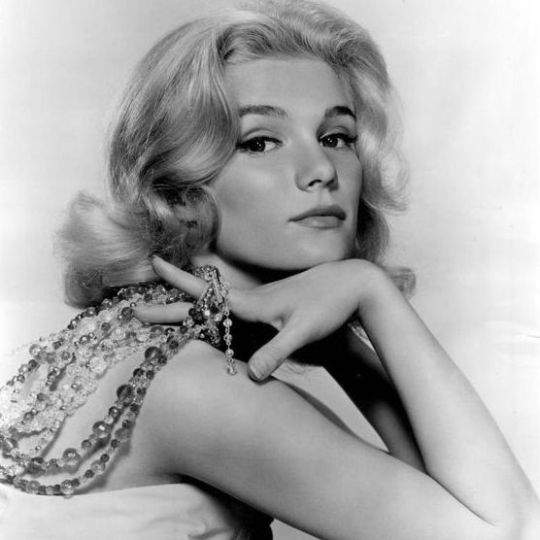

Propaganda
Yvette Mimieux (Dark of the Sun; Joy in the Morning; Where the Boys Are)—She is so enchanting on screen... that ethereal presence paired with her dark, sparkling eyes gives her an almost dream-like quality...
Xia Meng, also known as Hsia Moog or Miranda Yang (Sunrise, Bride Hunter)—For those who are familiar with Hong Kong's early cinema, Xia Meng is THE leading woman of an era, the earliest "silver-screen goddess", "The Great Beauty" and "Audrey Hepburn of the East". Xia Meng starred in 38 films in her 17-year career, and famously had rarely any flops, from her first film at the age of 18 to her last at the age of 35. She was a rare all-round actress in Mandarin-language films, acting, singing, and dancing with an enchanting ease in films of diverse genres, from contemporary drama to period operas. She was regarded as the "crown princess" among the "Three Princesses of the Great Wall", the iconic leading stars of the Great Wall Movie Enterprises, which was Hong Kong's leading left-wing studio in the 1950s-60s. At the time, Hong Kong cinema had only just taken off, but Xia Meng's influence had already spread out to China, Singapore, etc. Overseas Chinese-language magazines and newspapers often featured her on their covers. The famous HK wuxia novelist Jin Yong had such a huge crush on her that he made up a whole fake identity as a nobody-screenwriter to join the Great Wall studio just so he can write scripts for her. He famously said, "No one has really seen how beautiful Xi Shi (one of the renowned Four Beauties of ancient China) is, I think she should be just like Xia Meng to live up to her name." In 1980, she returned to the HK film industry by forming the Bluebird Movie Enterprises. As a producer with a heart for the community, she wanted to make a film on the Vietnam War and the many Vietnam War refugees migrating to Hong Kong. She approached director Ann Hui and produced the debut film Boat People (1982), a globally successful movie and landmark feature for Hong Kong New Wave, which won several awards including the best picture and best director in the second Hong Kong Film Award. Years later, Ann Hui looked back on her collaboration with Xia Meng, "I'm very grateful to her for allowing me to make what is probably the best film I've ever made in my life."
This is round 1 of the tournament. All other polls in this bracket can be found here. Please reblog with further support of your beloved hot sexy vintage woman.
[additional propaganda submitted under the cut]
Yvette Mimieux:
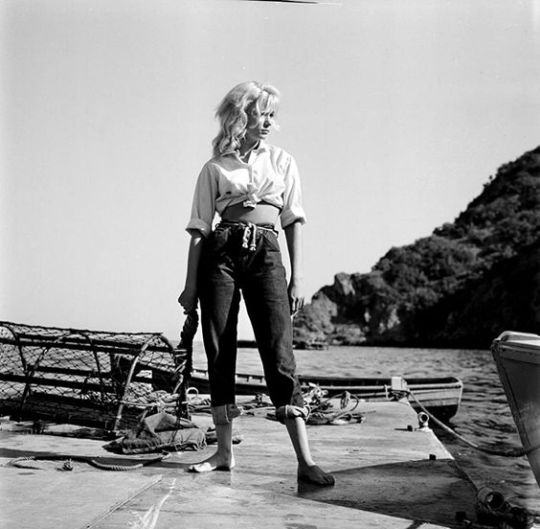
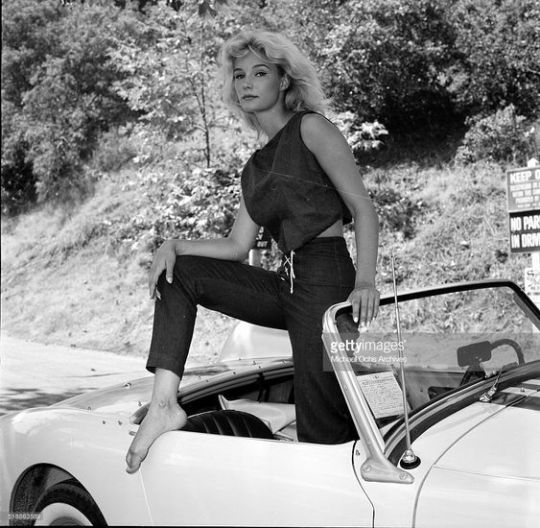
Xia Meng:
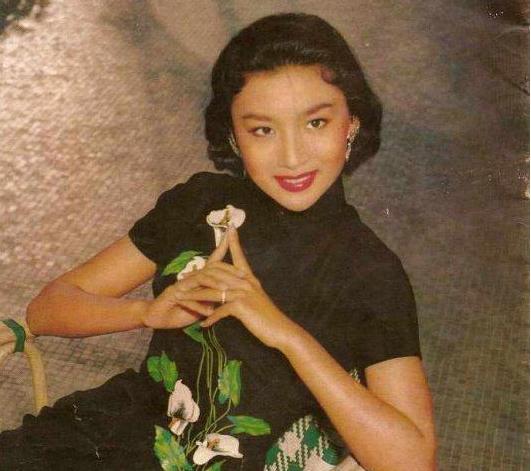
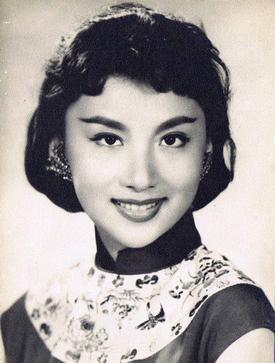
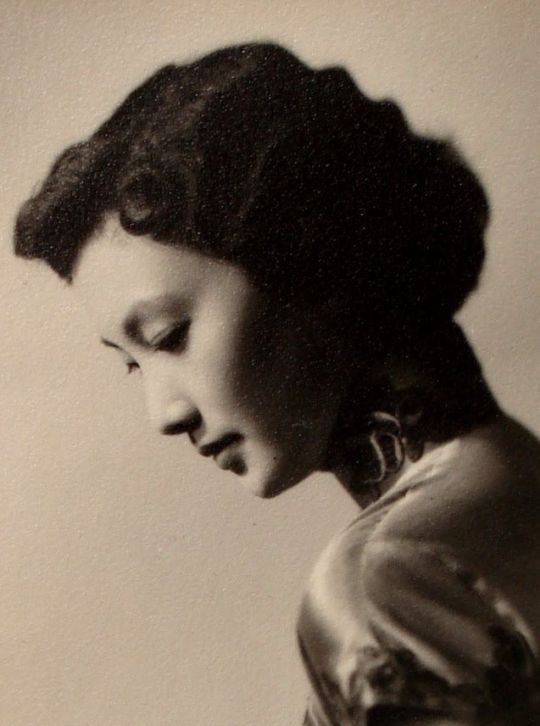
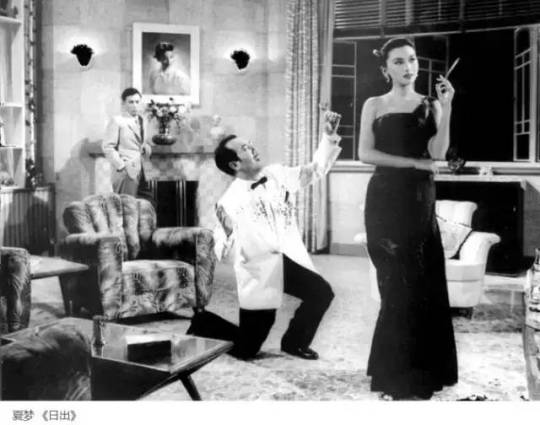
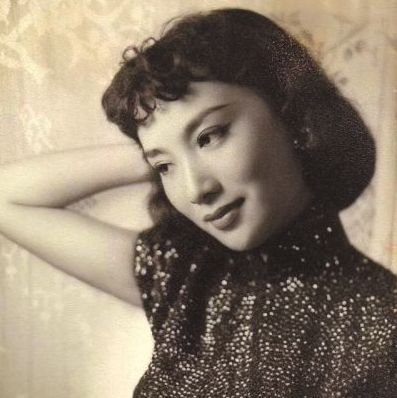
423 notes
·
View notes
Note
Hi, i was wondering what you were referring to here: "The state department will slip in some bullshit on the Uyghur genocide". What do you mean by bullshit?
There is no Uyghur genocide. It is entirely fabricated by the us within the last 4 years. The myth originates from a far-right christian fundamentalist adrian zenz working with the victims of communism foundation. Most of the claims come from the Uyghur World Congress, which is a group entirely associated with the us state department. The "East Turkestan Islamic Movement", the group most people point to as the Uyghur independence movement was listed by the us as a terrorist group before 2019 after which they began ramping up their Uyghur genocide narrative.
China has invited many international organizations to inspect and verify their claims and many have agreed that no genocide is occurring. Even the us state department themselves had to admit defeat and say no evidence of genocide can be found (this is obvious because they are working backwards from the manufactured narrative of genocide and looking for "evidence" that supports that). China is one current target of us imperialism. Xinjiang sits at a crossroads of Beijing's Belt and Road initiative. A disruption to a global development/trade plan here would serve us interests very well.
If you've seen my posts on terrorism/terrorists, you know that I don't see designations of 'terrorist groups' for much. My point there is the political posturing for propaganda. Terrorism arises from dire material conditions from which radicalization can occur, and indeed, terrorism in Xinjiang had been a serious, deadly issue. The PRC response was to build vocational schools and deradicalization centers whose aims are to eliminate the material foundations that lead to terrorism. Individually, this heavy handed approach is not ideal, yes, but astute readers will note that this pales in comparison to western styles of counter-terrorism: bombs and genocide. It's not even the first time vocational schools/deradicalization centers have been used either; Malaysia also employs them.
I am reminding you, dear reader, that the vast majority of sources on this subject come from western NGOs, media, and government sources, who are currently engaged in the erasure of several real genocides in the world, such as Palestine. If you compare the international response to Palestine versus with Xinjiang, you will see that the hallmarks of a genocide is not present. There is no mass refugee crisis in the countries surrounding Xinjiang; there are no verifiable recordings of any sort of genocidal action in Xinjiang; and there is not a stifling of journalistic transparency that we see in Palestine (i.e. the murder of journalists and censorship by western media), but, rather a silencing or refusal to participate from the west itself (one example).
I am glad many are sensitive to accusations of genocide; it is the duty of all people to stop them when they occur. However, because of our sensitivity, those who seek to enact imperialism across the world will take advantage of that instinct to manufacture consent for imperialist attacks on targeted countries. We have to stop and critically analyze any and all claims of genocide that come from the governments and media of the largest exporters and perpetrators of genocide: the west.
606 notes
·
View notes
Text
If you don't vote for Biden the gays will be rounded up in Project2025! No more abortion! No more anything!
Vote Biden!!
You mean this Biden?

U.S. will never allow Iran to acquire a nuclear weapon, Biden tells Israel's Lapid

US to launch West Asia Quad with India, Israel and UAE during Biden's visit
.....The same joe Biden that's ALREADY completing goals outlined in Project 2025?
And these are only links and evidence for one page.
Vote 3rd party or don't vote at all, I'm not your dad, do what feels right to you.
But don't vote blue and tell everyone it's a vote against Project2025 or Trump or fascism or that you're saving democracy with your vote. Because you're not. It's literally just gaslighting or at the very least an ignorant and uninformed stance.
You might as well be burning your ballot or voting for Trump.
Quit guilting everyone for not wanting to vote blue when him supporting apartheid & genocide is a good enough reason not to, let alone all of this, too.
And if you're gonna vote for him anyway, get used to being called a white supremacist who supports fascists. Because that's what you would be.
#vote#biden#trump#jasmine sherman#2024 elections#2024#fact check#vote blue#biden 2024#voting#electoral politics#usa#equality#social justice#human rights#queer#lgbt#iran#palestine#israel#saudi arabia#türkiye#nato#russia#china#liberals#democrats#democracy#us politics#liberation
332 notes
·
View notes
Text
"A net-zero power system is closer than we think.
New research, published by RMI, indicates that an exponential surge in renewable energy deployment is outpacing the International Energy Agency’s most ambitious net-zero predictions for 2030.
That’s right: Surging solar, wind, and battery capacity is now in-line with net-zero scenarios.
“For the first time, we can, with hand on heart, say that we are potentially on the path to net zero,” Kingsmill Bond, Senior Principal at RMI, said. “We need to make sure that we continue to drive change, but there is a path and we are on it.”
And that’s really good news.
Exponential growth in renewable energy has put the global electricity system at a tipping point. What was once seen as a wildly daunting task — transitioning away from fossil fuels — is now happening at a faster pace every year.
Based on this new research, conducted in partnership with the Bezos Earth Fund, RMI projects that solar and wind will supply over a third of all global electricity by 2030, up from about 12% today, which would surpass recent calls for a tripling of total renewable energy capacity by the end of the decade.
Global progress in the renewable energy sector
China and Europe have been leading the way in clean energy generation, but the deployment of renewable energy has also been widely distributed across the Middle East and Africa.
Research from Systems Change Lab shows that eight countries (Uruguay, Denmark, Lithuania, Namibia, Netherlands, Palestine, Jordan, and Chile) have already grown solar and wind power faster than what is needed to limit global warming to 1.5°C, proving that a swift switch to renewable energy is not only feasible — it’s entirely achievable.
In order to make that switch, globally, wind and solar need to grow from 12% to 41% by 2030. Denmark, Uruguay, and Lithuania have already achieved that increase in the span of eight years.
Meanwhile, Namibia, the Netherlands, Palestine, Jordan, and Chile have grown solar and wind energy at sufficient rates for five years...

The economic impact of climate progress
Not only is this an exciting and unprecedented development for the health of the environment, but this rapid transition to clean energy includes widespread benefits, like jobs growth, more secure supply chains, and reductions in energy price inflation.
This progress spans both developing and developed countries, all driven to accelerate renewables for a number of different reasons: adopting smart and effective policies, maintaining political commitments, lowering the costs of renewable energy, and improving energy security.
And with exponential growth of clean energy means sharp declines in prices. This puts fossil fuels at a higher, uncompetitive cost — both financially and figuratively.
RMI suggests that solar energy is already the cheapest form of electricity in history — and will likely halve in price by 2030, falling as low as $20/MWh in the coming years. This follows previous trends: solar and battery costs have declined 80% between 2012 and 2022, and offshore wind costs are down 73%."
-via Good Good Good, July 12, 2023
Let me repeat that:
For the first time in history, we are on an actual, provably achievable path to net zero emissions
#electricity#renewable electricity#renewable energy#net zero#climate crisis#fossil fuels#wind power#solar power#battery technology#uruguay#denmark#lithuania#namibia#netherlands#palestine#jordan#chile#global development#good news#hope
356 notes
·
View notes
Text
It can simultaneously be true that it's complicated and also no it's not.
It's complicated to end genocidal violence in the Middle East with the United States' history of backing Israel for sociopolitical reasons that largely have nothing to do with supporting Jewish rights as well as the undeniably bad optics of the US yet again trying to be World Police while also dealing with a deeply divided internal political establishment where Biden lacks a lot of the votes he needs to get things moving quickly or at all (see: our failure to pass aid for Ukraine due to Republican holdouts, when the Ukraine issue is much less divisive among the American public than Israel) as we also grapple with global events like Putin's absolute need to subdue Ukraine for both power and oil, the threat of China using nuclear weaponry against Taiwan, and the collapse of Haiti's government likely to lead to a massive influx of refugees in states that have hostile governments.
It's also not: Biden should be over there personally telling Netanyahu he's going to make all of their worst nightmares come true if they don't stop this right now. Not next week, not next month, RIGHT NOW. Yesterday! A month ago! Those were the times to take a fucking firm stand! But right now is the next best time!
75 notes
·
View notes
Text

晚安,苏联 (Good night, Soviet Union)
(Op's commentary autotranslated from Mandarin without edit:)
Today is December 25th, the day the Soviet Union collapsed.
What comes to mind when you think of the Soviet Union? Cold War, Red Empire, Khrushchev, Soviet March? revisionism? Will today's Russia be automatically converted into the Soviet Union?
This word also carries too many emotions for some people. Red October, Victory Day, communist ideals…etc. Perhaps the Soviet Union that Jingsu liked never existed. She is just a utopia led by the Bolshevik Party in the hearts of the Commis.
The Soviet Union was a great country. After the disintegration, no country can be said to be the "successor of the Soviet Union." The Soviet Union is unique and cannot be replaced or inherited.
She had been so powerful. Otherwise, why would Europe and the United States regard that ghost as a scourge now? After she left, the workers of the world were shackled again, and even her achievements were discredited by reactionary forces.
Dead people cannot speak. Even after her death, the US imperialists whipped her body like crazy and could not defend herself.
The ideal she represents is exactly what all Kangmi people aspire to. But her darkness is also like an abyss. She took a wrong turn in the end, but it is undeniable that she was a great country and the big brother of the red regime of that era. What we should oppose is Soviet revisionism, not the Soviet Union; what the Soviet Union truly deserves is its communist ideals, not force.
The red giant that fell in the winter of 1991 was probably because the winter in Siberia that year was too cold.
The Soviet Union is no longer there, but in the far east, on the land of China, there is still a red flag, and a spark is still burning on that land.
Free motherland, you are incomparably glorious, a strong fortress of love for all nations! Lenin's party, the power of the people, lead us to the victory of communism! Long live the Union of Soviet Socialist Republics!
104 notes
·
View notes
Text
Sweet Dream
The Sandman AU
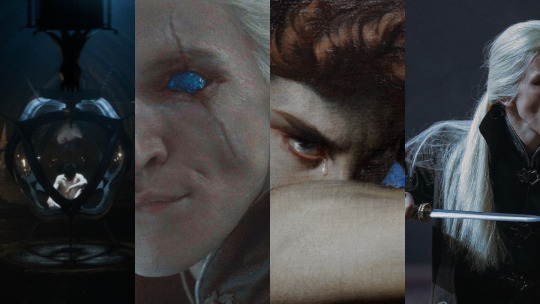
Her father means to summon and capture Death, but ends up with the wrong sibling. She becomes fascinated with their prisoner // Main Masterlist
Dream!Aemond x unnamed female character
Warnings: 18+, spells n shit, mild gore, death, lowkey Lima syndrome, smut
Words: 8000
A/n: For my fellow Morpheus and Aemond lovers. Also available to read on AO3.

Roderick Burgess had always been a terrifying man. In grief he has only become more irritable and less predictable.
The telegram came in the early days of July. She delivered the news to Roderick herself, while he was in his study. Her father did not like to be disturbed and he might have beaten her to remind her of the fact, until those fateful words slipped from her mouth. “Randall’s dead.” Shot down by a German machine gun at the Somme. In the end he had been one of thousands, his body buried in a neat line of tombstones somewhere in France, his name engraved on a plaque in the church at Wych Cross, ultimately unremarkable and indistinguishable from the other men and boys who had lost their lives.
But it was not so for Roderick. He let out a sudden groan and clutched his chest as though his pain was tangible and terrible. He shed no tears– of course he didn’t, but he gritted his teeth, crying out in fury as he dashed his hands over his desk, sending papers, books, fountain pens and empty whisky glasses tumbling to the floor.
She stood frozen, waiting for his hand to descend on her for being the one to tell him, but it didn’t.
When they held a memorial service for him, Roderick handed her a piece of paper, to read before the crowd of faces she didn’t recognise.
“Randall was our family’s happiness. He was the bravest, the wisest, and kindest older brother I could possibly dream of having.” Her hands and voice trembled as she read because she knew it was all a lie. In truth, Randall was like their father. They had the same short temper, the same stubbornness and the same cruelty.
But Randall being dead meant she could reinvent him.
Lately, she dreams of happier memories and looks back on them fondly, knowing they can never be contradicted or disproved.
While her father has dreamt of Death ever since.
It’s a brisk afternoon in October when a man in a suit, bow tie and bowler hat arrives at Fawny Rig. He clutches a leather briefcase in front of him and introduces himself as Dr John Hathaway, a curator from the Royal Museum, travelled all the way from London to this quiet corner of East Sussex. She leads him through the panelled halls of the manor, to her father’s study.
Roderick barges in behind them, in a shirt and waistcoat, already smelling faintly of whisky and waving his cane in her general direction. “Tea for our guest,” he orders.
She has the pot ready and strains the dark, reddish liquid into two delicate china cups while her father and Dr Hathaway settle on opposing leather sofas in the centre of the room.
“I take it you have reconsidered?” Roderick says.
“After our meeting at the museum… I know what I said, but–” Dr Hathaway takes an unsure breath. “I received a telegram this morning. My son, Edmund, his destroyer was sunk last week off Jutland.”
It’s a loss Roderick can share, even if he doesn’t really understand how other than a few quick words of condolence. “I lost my son, Randall last year. He was my greatest joy.”
She pauses as she reaches for the sugar bowl. She has never been under the illusion that her own existence has given her father any joy, but then what sort of person would she have to be to earn his respect? She places the sugar on a tray, along with the small jug of milk and the cups, and brings them to the small table between the sofas. The pair don’t spare her a word of thanks or even a brief glance.
Dr Hathaway’s hand lingers on the clasp of his case. “If I give you this, could you truly do it? Could you really–”
“Capture the angel of Death?” Roderick says. “I believe I could.”
She shudders unexpectedly. The old groundskeeper used to say a sudden chill meant someone was walking over your grave.
Dr Hathaway clicks open the clasp and takes out an aged, leather bound book. It has no title on the cover, just gold markings in square, geometric patterns.
“The Magdalene Grimoire,” her father mutters, his eyes wide in an ominous sort of wonder. “With the spells recorded in the book, we will see our sons returned to us.”
The next night is a full moon. She stands by the door with Sykes, welcoming men and women dressed in midnight blue robes to the manor and directing them towards the door that leads to the cellar. They’re all part of Roderick’s ‘Order of Ancient Mysteries’ which as far as she can tell is a cult of fanatics who still believe in witchcraft. They come to Fawny Rig once a month, to listen to her father read from so-called ‘spell books’ as though he is a preacher.
The fanatics pull hoods over their heads and descend the narrow stone steps into the cellar with lit candles grasped in their hands. Roderick leads the way, the book Dr Hathaway gave him tucked under his arm.
She shoots Sykes a concerned frown but he just shrugs. He’s paid to organise the household and guard Burgess’ collection of relics, not to ask questions. Questions are a dangerous game with Roderick.
She trails after them and shuts the iron lock on the door behind her.
The cellar is more like a crypt, an expansive room sprawling under the house, held up by pillars and arches. In the low candlelight she makes out a set of markings on the floor in the heart of the room and this is where the Order of Ancient Mysteries gathers.
The shapes and symbols are unfamiliar to her, painted onto the flagstones, twisting and curling over each other to form a circle. Roderick stands at the very edge of it by a brass lectern.
She watches, half hidden behind a pillar as they stand around the circle and Roderick opens the book, his desired page already marked and studied in the hours since it has been in his possession.
“Tonight,” her father says to his congregation, “we will achieve what no one before us has attempted. We will summon and imprison Death.”
His eyes meet hers through the shadowy space, heavy and sunken with age, grief and months worth of sleepless nights. They glisten slightly too.
He holds his hands out and looks down at the markings on the floor. “Here, in the darkness.”
The others echo his words, softly and melodically at first. Here in the darkness. Here in the darkness.
And so the ritual begins.
“I give you a coin made from a stone,” Roderick says, presenting the object to the ceiling as though the eyes of God are looking down from the heavens, through the house and the earth, and drops it to the floor, inside the circle of markings.
“I give you a knife from under the hills.” He holds up a thin blade and lifts his other arm so the sleeve of his robe drops to his elbow. “I give you the blood from out of my vein.”
She winces but does not look away as he draws the knife along the skin of his forearm, until dark droplets begin to fall and stain the markings.
“I give you a song I stole from the dirt and I give you a feather,” he says, raising a white feather that almost seems to glow through the gloom, “pulled from an angel’s wing.”
And all the while the voices persist. Here in the darkness. Here in the darkness.
He drops the feather and it drifts gently down, landing in the very heart of the circle.
The room is still and she holds her breath.
The feather starts to move. It twists in a circle and floats up, lurching and turning as though it’s being blown about by a breeze she cannot feel or hear.
The voices raise to an urgent chant. Here in the darkness. Here in the darkness.
She clenches her fingertips against the stone of the pillar. She tries to meet her father’s eye again but he is fixated on the feather flying above their heads.
He calls over the chanting, “I summon you with poison,” and the moment he does the feather flickers like the striking of a match. “I summon you with pain! I open the way! I open the gates! I summon you in the name of the old Lords, we summon you together! Come!”
A noise, like a cracking whip splits her ears. The feather bursts into white and golden flames like the flash of a camera. The heat of it rushes over her face and burns her eyes.
And from the flames a body falls to the floor.
It thuds as it hits the ground, silencing the voices save for a few gasps and murmurs. She feels the flagstones rumble under her feet, sees the edges of a black cloak spilling across the floor and a head of long silver hair trailing from its head.
This isn’t an illusion. Roderick Burgess has brought forth a tangible entity, plucked from God-knows-where, lying motionless on the floor. For a moment she wonders if he is dead, until she sees a slight movement in his chest, but even then she fears she could be imagining it.
She takes a few unsure steps to where Roderick stands and the man– he is a man as far as she can tell– is further revealed to her. She can see his face now, his pale skin, the angles of his jaw and cheeks, the curve of his lips, but beyond that she finds herself unable to look away from the jewel that sits where his left eye should be. It is a bright, deep shade of blue and dotted with silver specs, like the vast expanse of twilight when the stars are out but the sky is not quite black. The eye is framed by twisted, red flesh and a scar, slicing from his brow to his cheek. It takes her a moment to realise his other eye, closer to the ground, is closed.
The only other parts of him she can see are the tips of his fingers, clasped around a small pouch.
“Is this… Death?” she utters.
“That remains to be seen,” Roderick says. He points to the pouch. “Get that for me.”
She stares back at her father. How he can speak so flippantly when a man has been conjured, seemingly from thin air, is beyond her. But he glares back, his dark expression only more formidable with his aged frown.
So she steps forward and begins to lower herself beside the man.
“Careful, girl!” Roderick barks, “don’t break the binding circle.”
She stops and looks down, where her skirt is inches from brushing over the markings on the floor. She shuffles back and, with trembling fingers, reaches for the pouch. It’s not hard to take, the man hardly resists, twitching his fingers to keep it in his grasp. It feels wrong, stealing from someone too weak to hold onto what is his.
She looks into the jewel-like eye. Can he see through it? Perhaps it has something to do with the scar? Did he place it there himself, or was he simply made this way?
Someone snatches the pouch from her. She looks up at her father as he undoes the strings and peers inside. “Sand,” he mutters, and stows it away inside his robes.
“And the jewel,” he says to her.
She means to protest, but finds she cannot.
She avoids the markings as she leans forwards. She presses her fingertips beside the man’s eye. His skin is cold and firm.
She swallows her guilt and the nauseous feeling in her throat, nudging her fingertips into the socket. It takes her a few attempts, but she pries the jewel free, wincing when she feels it come loose. If he feels any pain he hardly shows it. His brow furrows but his other eye remains closed, and he makes no sound.
She stands and offers the jewel to her father.
Roderick holds it to the light of one of the candles, giving a curious hum before he pockets that too.
“Move,” he mutters to her, pushing her out of his way as he stands over the man. He tugs on the black cloak and it falls into fragments that fade away, like dust on a breeze. The man’s body is bare, pale skin running over details of muscle and bone. He shivers and twitches like he has a fever, but still he does not speak, or even let out a breath.
“We’ll let our guest recover,” Roderick says, “and then we shall make our demands.
They leave him there for days. He does not move, or ask for food or water.
She doesn’t dream in the nights since they captured their ‘guest’. In fact she hardly sleeps at all. Each morning she wakes, already exhausted, having felt like she’s only closed her eyes for a few brief moments.
Then come the stories in the newspapers. They call it ‘the sleeping sickness’. People all over the country, and in fact the world, have been plagued, either to not sleep at all or never wake up.
On a cold, drizzly morning, a stranger appears at the door to the manor.
She listens and watches from the top of the stairs, crouching by the bannister to stay out of sight as a man with choppy silver hair and pale skin strides into the entrance hall, with Roderick following closely behind.
“Do I know you?” her father asks, furiously.
“No.” The stranger’s voice is low and almost seductive. “But I know all about you, Roderick Burgess, and the being trapped in your basement.”
“You mean to intimidate me?”
She sees a flash of a grin and a pair of pale purple eyes through the wooden balusters.
“I am here to help you,” the stranger says. “There are benefits to keeping one of the Targaryens in your confinement.”
“Targaryens?” her father echoes.
“Did you think Death was the only one of her kind? Death has family. Destiny, Despair, Desire…”
“And who have I got?”
“Dream,” the stranger says with a smile that bares his teeth.
A shiver runs over her shoulders. She keeps her jaw tight to stop herself from reacting to it.
Roderick scoffs. “What good is a God who governs dreams?”
The stranger's voice darkens. “There was a saying in the ancient times of humanity, that said the Targaryens are closer to Gods than men. But they are not Gods. They are more than Gods. They are Endless.”
He tells Roderick of Dream’s vestments, the pouch of sand and his sapphire, both of which he says Roderick may manipulate for his own influences. He says the binding circle will not be enough to contain their prisoner, that they must construct a sphere of glass within the circle.
Most crucially of all, he says no one must be allowed to fall asleep in Dream’s presence.
“Why are you helping me?” Roderick finally asks.
The stranger runs his tongue over his teeth and smiles to himself. “Little family dispute, I shan’t bore you with the details. But for your sake, and for mine, he must not escape.”
He offers his hand to Roderick, who returns the gesture after a moment of hesitation.
Before he heads for the door, the stranger’s eyes trail up to where she hides. Her heart leaps with a sense of dread, like she’s seen something she wasn’t meant to.
She doesn’t trust him, not by the look or sound of him, but her father does. He follows the stranger’s instructions, ordering the construction of the glass sphere, to be welded around their prisoner as it is made. Finally, he arranges a rota of guards to keep watch over him, under strict orders to never fall asleep, lest their prisoner escape into their dreams.
The details of his face are etched into her memory, even after months, the angle of his jaw, the curve of his upper lip, the silver falling over his shoulders. If she could dream, she is sure she would dream of him. Instead she holds onto the flashes of images that appear before her waking eyes, the pale skin of his bare body against the floor, the stars in his sapphire eye, now kept locked away in her father’s study.
She knows Roderick has tried to bargain with him, and each time he returns from the cellar more furious than when he entered it. “He will not speak a word!” his voice bellows through the quiet halls of the manor. “He will not even look at me!”
When she dares to ask questions, Roderick glares at her and tightens the grip on his cane.
The stranger with silver hair was right about something, wealth and admiration have come to Roderick Burgess in droves since he acquired the Lord of Dreams. It’s something about the sapphire, or the sand, something she doesn’t understand, but their family comes across good fortunes, which is almost entirely spent on lavish parties to entertain Roderick’s ever expanding crowd of admirers.
She wakes with the sunrise, from a void and dreamless sleep. The manor is littered with empty bottles, full ashtrays, plates of half-eaten food, odd shoes and playing cards. Her father must still be asleep, which is odd. He is usually an early riser, even after a night of drinking.
A rumbling in her stomach has her heading through the entrance hall towards the kitchen, but she stops when she sees two men waiting by the door to the cellar– two of the guards her father has hired to watch the prisoner, dressed in smart suits with service revolvers just poking out of their jackets. They look restless, peering their heads round corners, shifting their weight on their legs, not wanting to step too far from the door.
“We can’t just leave,” one mutters to the other.
“I’m not staying down there with that… thing one second longer than I have to–”
“Good morning,” she calls.
They look at her in unison, and frown.
“Have you seen Noel and Mauirce?” one of the men asks. “They’re nearly half an hour late.”
The rotation of the guards. They take eight hour shifts in pairs.
Her eyes glance to the cellar door, opened only a fraction. “I could watch him until they get here,” she says, “if you want to leave.”
It doesn’t take them long to agree.
They leave through the front door. When she hears it shut, she finally lets herself reach for the handle to the cellar door. The handle is cold, untouched for hours at a time, and a little stiff. She pushes on it slowly, carefully, making as little noise as possible.
With the cellar door closed, she shuts out the light and warmth of the morning. A silent, icy draft drifts through the narrow stairway. She follows it down, all the way to the dull, eerie light of the main chamber.
The sight takes her breath away, the glass sphere, suspended above the ground, still within the circle of markings that keep his power contained.
He sits in the centre, still bare, his knees tucked into his chest and his hair falling around his face like a veil.
As far she knows, no food or water ever passes the threshold to the cellar, and the cage is never opened. How does he breathe? How does he eat? How does he not wither away? He just sits there, stoic, his face frozen in time like a statue, like the image of a god cut from marble, to be preserved and admired.
A man like that cannot be real, and yet there he is.
“Hello,” she says.
He does not react to her voice or the sound of her footsteps as she walks further into the chamber.
If he can even hear her. She wonders how thick the glass is, if sound can permeate it, or does he just hear the sound of his own breath echoed back to him, endlessly.
She comes to lean against one of the pillars, tracing her fingertips down the cold, rough surface of the stone.
“Are you really the Lord of dreams?” she says.
His gaze lifts and turns to her, just enough that she can see his chin, his nose, and a single violet eye. It is not like the stranger’s, it is far more vibrate, burning with with a silent fury that makes her heart flutter and her skin feel tight.
“I have not dreamt since that night.”
She knows it isn’t just her. It’s the sleeping sickness, the war, the cloud of darkness looming over the rest of the world.
“The groundskeeper has a son, he’s only ten years old. He’s been asleep for months now. He can’t even eat. If he doesn’t wake up, he’ll die.”
He does not react, but his eye follows her as she takes a single step away from the pillar, towards the sphere.
“This is my father’s– our doing, yes?”
Her eyes dip to his chest, to the movement of his lungs underneath skin and muscle, a steady rise and fall with a deep, patient breath.
“My father is a reasonable man, if you could give him something, anything, I am sure he would let you out.”
He tilts his head, until she can just see the point of his scar on his cheek and the edge of his empty eye socket.
He is simultaneously the most terrifying and most beautiful thing she has ever laid eyes upon. The low light only accentuates the harsh angles in his face, the ridges and lines in the muscles and tendons of his neck, torso, arms and legs.
She takes another step closer. “I would let you out, if I could,” she says quietly, like a secret.
He blinks softly, and when her eyes flicker to his lips she sees them curled into something almost like a smile, but not quite.
“Oh you would, would you?”
Her blood runs cold at the sound of her father’s voice. She whips her head around just in time to see Roderick marching towards her with his hand reaching out. His fist grips at her hair, and when she yelps in pain he hisses at her to be quiet. He drags her back up the steps, away from the cold cellar, to the warmth and the light, to the world without dreams.
She bathes before dinner, wincing as she runs her hands over the fresh bruises that mark her skin. Most of them are red, others are set deep and already turning a greyish purple.
Her father’s fury still rings in her ears. “Stupid girl! If he escapes he will slaughter us all!”
Leaning on her back is especially painful, it’s where her body took the brunt of his cane. She brings her knees into her chest, hunching over herself.
She hasn’t cried over her father’s cruelty in years, not since she was a small child. He’d always call her weak for it. Randall never cried when he was disciplined, because he knew, deep down, it was good for him. Perhaps she is simply not as strong as Randall was.
Her tears are hot and stinging in her eyes. She blinks and lets them fall onto her knees, to become the dew that lingers on her skin.
“Do you want to die, girl? Because it can be easily remedied!”
She doesn’t wear anything special, a white satin dress, with long, billowy sleeves, and applies some rouge to her cheeks, to make her seem more awake, more alive.
She reaches the bottom of the staircase as the clock in the entrance hall starts to chime. Five times. Marking the start of another shift rotation.
Two men appear from the hall that leads from the cellar, vaguely nodding as they pass her.
She can see into the dining room from the stairs, an enormous table set with silver cutlery and china plates, for just two of them.
The door to her father’s study is closed, obstructing the voices within. He’s arguing with someone.
Before she can stop herself, she’s walking towards the cellar. She tries the handle to find it unlocked. With one final look to the door to the study, she descends back into the darkness.
Two guards sit on wooden chairs by the entrance from the stairway, and immediately stand to attention as she walks into the chamber.
“Miss,” one of them calls, “you cannot be here.”
And she seems to have caught his attention too. He looks up from where he sits in the sphere, his forearm resting on his knee. His hair is pushed from his face, and his violet eye is wide, curious.
“This is my father’s house, I will go where I please,” she says, shakily, continuing until she comes face to face with the glass.
He stares at her, somewhat furious, but in a way she knows it is not meant for her.
The men behind her are muttering to each other, she doesn’t hear their words, but she hears their panic.
“It isn’t right for him to keep you here,” she says. “It isn’t right for him to think he can play with mortality. And I am as bad as he is for letting this happen.”
The tendons of his hand flex as he clenches his fist, his fingers restless as he stares at her, intently.
“If I let you out,” she whispers, “would you harm me?”
His face softens as his eye moves over her face.
He’s studying her, she realises. She imagines him noting the curves of her cheeks and chin, the shape of her mouth, perhaps the faint teartracks and the dark circles under her eyes.
What does he make of her, the daughter of his captor, the one who pried the sapphire from his eye? Roderick could be right, he might slaughter her the moment he is free from his cage.
“I would like to believe that you wouldn’t,” she says.
His expression gives nothing away.
Suddenly he shifts. His muscles tense as he comes to his feet and uncurls his spine to stand before her. Something about his movements are distinctly inhuman.
The guards behind her are shouting now, telling her to step away, calling for Mr Burgess. Their voices are inconsequential to her, muffled as though spoken behind a closed door. Her heart pounds in her ears. All she sees is him, the intense gaze of his eye, a wide palm reaching out and pressing against the glass.
She reaches up slowly, his eye growing wider with every inch she comes closer to touching the glass that separates them, but not quite meeting it.
His brow furrows as if to question her. Why are you hesitating? What are you afraid of?
She won’t be dragged upstairs again. She won’t be thrown to the floor with nowhere else to go. She will not suffer at the hands of Roderick Burgess any longer.
So she presses her hand to the glass.
Her skin is feverishly cold, her arms weightless. She can almost feel the shape of his palm through the glass, but not quite, like she is reaching for something she will never touch, clawing to the memory of a dream.
She can feel herself slipping into numbness, her eyes and her limbs becoming heavy. She presses her fingernails against the glass, silently pleading though she doesn’t know what for. An escape? An end? Anything.
His face is strangely gentle as he pouts his lips, hushing her, lulling her panic. She can feel her breathing and her heartbeat slowing, but it does not frighten her.
The glass shatters, her knees give way. She is awake enough to know she is falling, but too far gone to stop herself.
But she does not need to.
The world around her is silent– no, a gentle breeze drifts over her skin and whispers in her ear. Sunlight beams onto one side of her face and the other rests against bare skin. She feels a weight around her waist, something propping her body upright.
She tries to steady herself but the ground shifts beneath her. The arms around her only tighten their grip when she stumbles.
Finally she lets her eyes flutter open. They are in a desert, a vast expanse of dry sand, reaching as far as the eye can see.
Her head is moving with his breath, against his chest.
She tilts her gaze up, close enough that her lips barely brush over the base of his throat.
His eye is already fixed on her, holding her firmly in his arms, pulling her into him.
Wordlessly, he releases one arm from her waist, and reaches down, keeping his eye on her face. When he brings himself back up, she looks at his closed fist, where sand slips from between his fingers.
Her confusion must be visible on her face because he smiles softly at her, letting out a low “hmm” as he does.
She means to blink, but when she opens her eyes the world has changed again.
She lies face down against the ground of the cellar, dust and dirt pressing into her cheek, broken glass littering the floor around her.
She blinks again through the haze of sleep still clouding her vision. She makes out a figure in a long black coat with silver hair falling down his back. He stands over two bodies, lying lifeless on the ground, and stalks towards another.
Roderick is at the base of the stairs. He raises his cane and cries out as the prisoner reaches into his coat.
Her father’s voice fades into a spluttering, retching sound. Then he is silent. His body slumps to the floor with a gut-wrenching thud. When the stranger walks away, she sees her father sprawled out on the floor, blood spurting from his throat, seeping into his shirt, pooling on the floor around him.
She pushes herself up, leaning on her hands as her vision is blocked once again by a black coat. He stands over her, blood dripping from a knife he holds in his hand, his eye a brighter shade of violet than it was before.
He kneels beside her, taking her chin in his fingertips.
“Are you hurt?” he says. His voice is a hypnotic blend of soft and harsh, low and light, chilling in a way that sends a wave of warmth through her stomach.
She looks past his shoulder, where Roderick’s skin is turning from white to grey. “What did you do to my father?” she utters.
He jerks her head back to him. His expression is dark, lips upturned into a sneer.
Does he expect her to be grateful?
“My tools,” he says.
“You’re… what?”
“My tools. The sapphire and the pouch.”
The items that were stolen from him, that her father has now paid for with blood.
“Are you going to kill me too?” she says, digging her fingertips into the stone and the shards of glass beneath her.
He tilts his head and his lips twitch in a flicker of movement. His voice is barely above a whisper. “Tell me where they are. I will not harm you.”
Three men lay dead mere feet from them, and yet she finds herself wanting to trust him.
He offers her his arm as she stands, gripping at the thick, leather sleeve. Her palms are covered in small cuts from the glass, droplets of bright red blood pearling at the edges. He takes her wrists in his hands to have a look and tuts to himself.
“Quickly,” he says, moving towards the steps, leading her along with him, past the bodies of the guards, and the body of her father.
She brings him to the study, her hands shaking, bloody and outstretched before her. The door is wide open, a stack of papers thrown carelessly to the floor.
Roderick’s safe sits in a black cabinet in the corner of the room. She uses her fingertips to open it, wincing at the pieces of glass still stuck in her skin, but she swallows down the pain.
She guesses the combination on the first try. 1895– Randall’s birth year.
There, in the centre shelf, above the Grimoire, below a stack of banknotes, is the pouch of sand and the sapphire.
He reaches for the gem first. She turns away as he fixes it back into his socket, remembering the weight of it in her palm when she took it from him. She sees him reach forward again, but not for the pouch. He takes a hold of her wrists.
With no magic words or spells, he waves a hand over her palms. For a moment she sees a glow in his sapphire eye. The pain vanishes, so does the blood, the glass and the dirt.
She blinks a few effortless tears from her eyes. Tears for her father, tears of relief, she cannot place a cause.
Cold fingertips meet her skin once more, as the Lord of Dreams wipes her tears away, bringing her gaze to meet his.
He leans in closer, until his forehead meets hers. “Sleep,” he whispers.
She falls into him, to find herself wide awake, clinging onto him as she had done in the desert.
But they are somewhere else entirely. The sky above them is a pale yellow, like daybreak, painted with swirling grey clouds. The land here is… dead. Dead trees, barren mountains and hills, and in the distance, beyond a dried lake, is a castle of red brick, decrepit, falling into ruin.
“You see the damage that has been done to my realm?” he says. With her ear pressed against his chest, his voice is cavernous and she feels everything, the way his words drag through his throat. She feels his pain at being confined, the loss of his home and his creations.
“I’m sorry,” she says.
“I do not forgive easily, that is why Roderick Burgess had to die. But you…” he pulls away from her so he might look at her properly, cupping the sides of her face and swiping his thumbs over her cheeks. “I do not need an apology from you. We are free of him now.”
“Is that what you think I wanted?”
He hums with tight lips. “I have seen your dreams, as I see the dreams of every mortal. I see them as clearly as you perceive the waking world. It just so happened that our dreams coincided.”
She had never dreamt of her father’s death and she had certainly never imagined that she might have played a part in it. But she cannot deny the weight now lifted from her shoulders. She will never have to earn his approval, she will never have to endure him again. She is free of him.
“Go now,” he says, “I am sure you have your own business to resolve.”
He releases his hold of her and brings his hands behind his back. As he walks towards the castle the world around her starts to fade. She can smell the musk of the manor, the lingering smoke of her father’s cigars, the distinct scent of a winter evening.
“Wait!” she calls.
The ends of his coat swish around his legs as he turns back to face her. “Yes?” he says, the corners of his mouth curling up into a small smile.
“I want to know your name.”
“I have had many names,” he says.
“And how would you have me know you?”
“Aemond,” he says.
She echoes his name, letting her mouth linger on the final syllable. “Will I see you again?”
He draws the tip of his tongue between his lips. “Perhaps,” he says.
When she wakes she is laid out on one of the leather sofas of her father’s study. She looks down at her hands, traces her fingertips down her face, now free of the dirt and dust.
She wonders if she might have dreamt all of it, the beautiful man in the sphere, the glass breaking, her father’s blood on the floor…

Her life is never the same after that. With her father dead, his estate passes to her. For the first time, her life is hers to do with as she pleases.
And yet she feels an absence, a hollow longing in her chest.
Her dreams come back to her since she set him free, and each night she dreams of him.
He only appears in brief moments, like lighting, bright and brilliant, but gone in a heartbeat, before she can truly see him. She sees the movement of a leather coat, flashes of silver, violet and sapphire blue. Sometimes she is met with darkness as a pair of lips ghosts over her neck with a contented sigh and a warm breath.
She cannot bear it.
As she lies in the empty manor house, she traces her fingers over her body, her lips, down her neck and her chest, underneath her cotton nightgown, to her navel and the pool of wanting wetness between her legs, trying to imagine they are his.
She pictures the way his hair fell around his face, the coldness of his skin, the curve of his lips. She imagines them parting in a small sigh, the sound of his breath, the way his chest hummed as she circles over her bundle of nerves. Pleasure sparks at first but it keeps slipping from her grasp.
She circles faster, harder, searching for a spot that will finally give her the release she craves.
She feels heat and a sheen of sweat settling on the surface of her skin, her breathing hitches, her hips twitch under her touches. The pleasure heightens, then fades.
With her eyes tightly shut, she spurs herself on with thoughts of him, breathlessly chanting his name into the empty space and cold air of her bedroom.
“Aemond… Aemond…”
Something changes.
The mattress shifts beneath her and a weight presses against her body, her legs, her stomach, her chest.
A hand clasps around hers, ceasing her movements, and bringing it to rest by her side.
She laments the loss of the friction against her bud, her pleasure pulled away from her, but in its place anticipation blooms within her.
When she opens her eyes he is above her, against her, hovering his face over hers so that all she sees are his eyes, one violet, one sapphire.
“You have my attention,” he says in a soft but unsettling voice.
A thrill ripples through her body.
She whispers his name on an exhale of breath, running her fingertips over his arms, tense and toned as his props himself over her.
But she is somewhat dazed, her senses numbed by fatigue and the echo of the pleasure she had been chasing.
“Is this real?” she utters.
Aemond leans further into her. She feels a weight between her hips and an unmistakable hardness prodding at her centre as he brings his lips to her neck, pressing a slow, teasing kiss against a sensitive spot of skin that has her body tensing and her fingers digging into his shoulders.
“Does if feel real?” he whispers against her skin.
How much has he truly seen of her dreams, her desires, she wonders? Perhaps she should feel some kind of shame, but she cannot, not when she is on the precipice of something bright, beautiful and damning. She can hardly stand being on the edge of it, having him so close but not close enough.
She wraps her arms around his neck as he teases her with his lips, crosses her legs around his hips, meeting his movements as he torturously grinds his hardening cock against her cunt, dripping with arousal, twitching and clenching around nothing at the anticipation.
“Needy little thing,” he mutters, dragging his nose along her neck as he comes to kiss the hollow of her throat.
His voice sends a shockwave through her body. Her hips buck against his, determined for relief as her fingers thread through the soft strands of his hair, and tug.
He lets out a quiet growl against her skin. A hand rests upon her thigh and trails up, bunching the hem of her nightgown to her waist and adjusting the other side.
He sits back, watching her with the same darkness and intensity as when he was trapped inside the cage, intrigued at the least, fascinated if she is presumptive.
The irony of being laid half bare before him and at his mercy does not escape her.
“I’ve heard you crying out for me, little mortal,” he says.
“You said you can see my dreams,” she says, “how?”
“Your dreams exist in my realm,” he says, “in The Dreaming. I see your dreams as I see the dreams of every other being. I feel them, as clearly as you perceive the waking world. But you…” he muses, settling his hands on either side of her waist. “You are incessant.”
She shivers and writhes under his touch, a pulsing heat settling within her.
She traces her hands over his, where they grip at her waist, along his smooth skin, the tendons and veins. His fingers are long and lithe. She knows they would feel so perfect, wrapped around her throat, stroking over her skin, pushing inside of her wet heat to coax her pleasure.
Aemond smiles to himself as though he can hear her thoughts.
He grips harder into her flesh and pulls his hips back, only to let his cock slide over her slick folds with teasingly gentle thrusts.
Every stroke pushes her closer and closer to the edge, but not enough to find release. She feels the frustrating want pulsing through her body, the coil getting tighter and tighter, her cunt clenching over nothing.
“Aemond…” she says with a breathless mewl, “please…”
“You really want it, don’t you?” Aemond growls, resting his forehead against hers. “Just feel how wet that empty little cunt is for me.”
Her eyes trail along the angles of his face, the line of his scar, the night sky in his eyes as he stares down at her, the gentle curve of his lips and how they settle into a soft expression.
Her gaze slips further down, over his throat, his collar, his pale, bare chest, the ridges of the muscles on his abdomen, the slight dip in his waist, the trail of silver hair to his cock, long, hard and flushed with need, transfixed by the way it moves against her.
She holds her breath each time he withdraws, stifling her whines into his mouth when he only keeps teasing her.
“I want it,” she groans, “I want you. I’ve wanted you since the moment I saw you.”
He lets out a contented hum as he leans down to kiss her. The movements of his mouth are slow and consuming, claiming her with lips, tongue and teeth, wetness and warmth.
She holds him close by the sides of his face. In his violet eye she sees his hunger, his rage, his lust. In his sapphire, she sees oblivion.
And finally, he eases himself into her.
He fucks her delicately, dragging his cock through her gently, slowly, deeply. His lips ghost over her skin, her temple, her cheek, back to her mouth with light kisses and strained but soft breaths.
With a few deft circles over her bud she feels herself come undone around him. Her climax burns through her and she holds him closer for purchase, digging her fingertips into his skin as her resolve melts and her legs tremble around his hips.
Aemond doesn’t stop. He holds her against the mattress with a determined grip, fucking her through her peak until her pleasure settles and simmers once more.
Being kissed by him, held by him, fucked by him feels light a dream, that weightless, numb feeling of being between consciousness and sleep coursing through her limbs. It feels good, it feels deep, it feels perfect.
She cannot be sure how many climaxes he draws from her, she just feels him, his heat, his hands and his skin as he repositions her legs, guides her onto her front, brings her up to her knees, pushes her back down again, until she is a blissful, mindless mess.
He meets his own end when he has her face down on the bed, her face turned to the side against the pillow, his mouth on the underside of her jaw as he pounds into her.
“You’re doing so well,” she hears him rasp, “you’ve been so good to me… fuck, I don’t think I’ll ever get enough of you.”
Her mind is beyond words and coherent thoughts. She utters the only thing she feels, the only thing she can think of, “Aemond… Aemond… Aemond…”
He stills his hips against her rear with a guttural moan, pressing his face against hers, squeezing her waist under his hands. He allows himself a few more shallow thrusts until he is spent. She feels his cock pulse within her, a warmth pooling, his spend dripping from her cunt once he has pulled away.
The weight dissipates from her back and for a moment she lies there, basking in the afterglow, feeling her chest rise and fall against the bed, the softness of her sheets under her fingertips.
She wakes to a gentle breeze running over her skin and slipping down her spine.
She allows her eyes to flutter open and recoils at the pale sunlight beaming through the spaces in the curtains.
She holds her breath.
She hears no sound or sign of life other than her own pulse.
She twists herself to sit up, noting that her bedsheets are neat and the hem of her nightgown is where it should be.
Is it possible that she dreamed it? She remembers it so vividly, but the mind has a way of playing tricks. Perhaps it was only a dream.
“Your dreams exist in my realm,” he had said. “I feel them, as clearly as you perceive the waking world.”
How do we determine what is real? she wonders as she pulls on a robe and goes to open the curtains. The morning floods her bedroom. It brings no warmth, but it brings light and life back into the room.
To dream is to live beyond ourselves, why should that be any less true than the world around me?
She seats herself before her vanity, reaching for the drawer for her hairbrush.
But something catches her eye, a glint of colour against mahogany wood, a small gem catching the sunlight.
She takes it between her thumb and index finger and brings it before her eyes; a sapphire, the size of a pearl, a deep and vibrant blue. Its edges are uneven and dull, uncut, as though plucked straight from the earth.
She turns it about between her fingers. It could be a trick of the light, but there is depth to it, a vastness within. The sapphire seems to capture the night sky, dotted with glimmering stars.
His was the same.
As the dazed state of sleep wears off, she feels the satisfied ache between her legs, the spots on her skin marked by him. She smiles to herself and holds the gem in her palm, this precious gift, this reminder, this promise from the Lord of Dreams.

Tags (comment to be added)
Sweet Dream taglist: @solisarium @sirenangelroyal @sabrinasstar @shygardengalaxy @aemondsfavouritebastard @wintrr13 @thedamewithabook @lexwolfhale @rainyforest777
General taglist: @randomdragonfires @jamespotterismydaddy @theoneeyedprince @tsujifreya @dreamsofoldvalyria
#aemond targaryen#aemond targaryen fic#aemond targaryen fanfiction#aemond targaryen oneshot#aemond fanfic#aemond fanfiction#aemond oneshot#aemond x reader#aemond x ofc#aemond x you#aemond targaryen x reader#aemond targaryen x ofc#aemond targaryen x oc#aemond targaryen x you#hotd#house of the dragon#house of the dragon fanfic#the sandman#the sandman au#my fics
392 notes
·
View notes
Text
I Feel You Linger In the Air
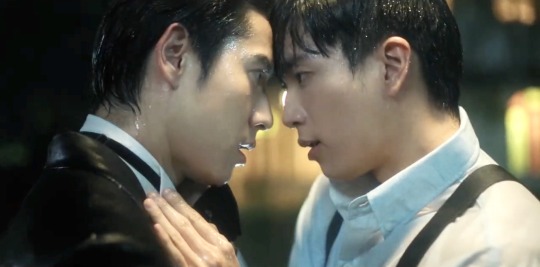
You ready for this?
The quickest of quick thoughts: I loved this show and hated the ending, but not for the reason you think.
This is gonna be one of my big meta beast-sized posts, skip to the end for the final review.
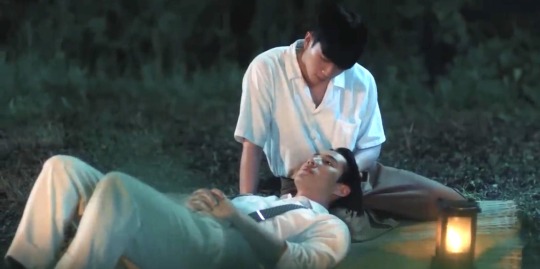
Some Historical Context for I Feel You Linger In The Air - Thailand 1925-1932
I love history and so here's some info that any Thai watcher would likely know, but the rest of us might not... ready?
The Historical Stage:
Burma (now Myanmar) to the west is occupied by the British.
The French hold Vietnam to the east.
Everyone is bickering over what would become Cambodia & Laos.
China occasionally gets involved from the North (also, lots of immigrants from China at this time accounting for a large percentage of the merchant/middle class)
Eventually, Japan would invade during WWII.
In part, The Kingdom of Siam was kept a "neutral" party because none of the surrounding colonial powers wanted to risk offending any of the other players in the area.
Siam re-negotiated sovereignty in 1920 (from USA) and in 1925 (from France & Britain). But during the time of this show (late 1929) it was back to it's customary type-rope balancing act of extreme diplomacy with the allied western colonial powers that surrounded it.
Recognizing that Thailand was never colonized (although it was invaded), it's boarders were constantly nibbled at and it was "ambassador-occupied" off and on by westerners whose military backing and exploitive business concerns simply outmatched the monarchy, especially in the technology department (as well as by reputation on the global stage at the time).
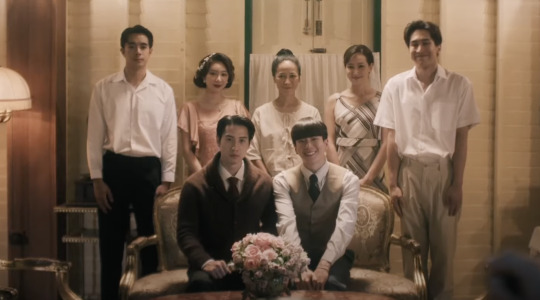
In other words, the farang in this show (James & Robert) were always gonna be both the baddies and the power players of the narrative. (Farang is the Thai word for non-Thai's of European descent, the word means guava.)
The king of Siam at the time (Vajiravudh AKA Rama VI) was initially somewhat popular but also regarded as overly extravagant since Siam had been hit by a major postwar recession in 1919. It should also be noted that King Vajiravudh had no son because he was most likely gay (which at the time did not much concern the Siamese popular opinion, except that it undermined the stability of the monarchy leaving it without an heir).
He "died suddenly" in 1925 (age 44) with the monarchy weakened and succession handed off to his younger brother.
In 1932 a small circle of the rising bourgeoisie (all of whom had studied in Europe, mostly Paris), supported by some military, seized power from the monarchy in a practically nonviolent Siamese Revolution installing a constitutional monarchy. This is mentioned in IFYLITA in the last few episodes but did not (apparently) appear in the original novel.
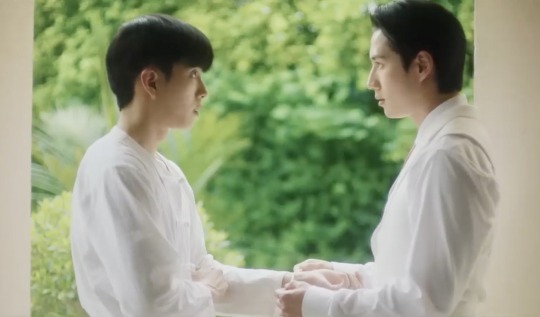
Siam would then go through:
dictatorship,
WWII,
Japanese invasion,
Allied occupation,
democratic elections,
military junta,
the Indochina wars,
communist insurgency,
more democracy and popularization movements,
multiple coups,
more junta,
more monarchy,
eventually leading us to the somewhat chaotic insanity of Thai politics we have today. (Which is, frankly, a mix of monarchy, junta, democracy, egocentric popularism, and bribery.)
The Filming of I Fell You Linger in the Air
The director if this show, Tee Bundit (Hidden Agenda, Step by Step, Lovely Writer, TharnType), has never particularly impressed or offended me as a director. I would have called him simply "workmanlike" in execution: not offensive, serviceable.
So much so that I spent some time hunting for info on IFYLITA's cinematographer (who remains uncredited on MDL) because this one, of all Tee's pantheon, is ultra stylish. It, frankly, felt too good for him.

Specifically, there is a repeated visual motif in intimacy scenes of either Yai or Jom being filmed from behind a screen/drape/curtain making them seem more translucent, like a ghost or spirit. While the other half of the pair is filmed with sharp clarity. In the first half of the series this is more likely to be Yai (an unknown and mysterious element), as the show progresses, it's more likely to be Jom (the person outside of place and time, destined to vanish all together). This cleverly conveys story, tension, and foreshadow (future shadow?)
Occasionally we shift over so they both become obscured and then clear again.
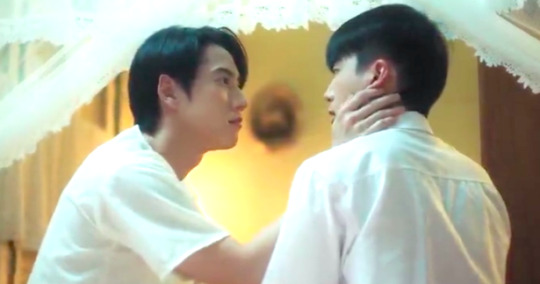
This stylized version of dirty framing and filters is used to foreshadow and then constantly remind us about that Jom slipped (and is slipping) through time and the disconnect that causes to his sense of reality and purpose, and to his burgeoning relationship.
For example, the scene where Yai is drunk and asleep in his bed. The first time Jom is sitting in a chair drawing him. Yai is blurry behind the screen while Jom is solid and sharp.
This filming technique combined with dirty and peekaboo framing is being used to give the watchers the impression of looking at something we maybe shouldn't, like we are being creepy and intruding on their private time. After all, they can see EACH OTHER clearly, it's only us who have the visual impairment.
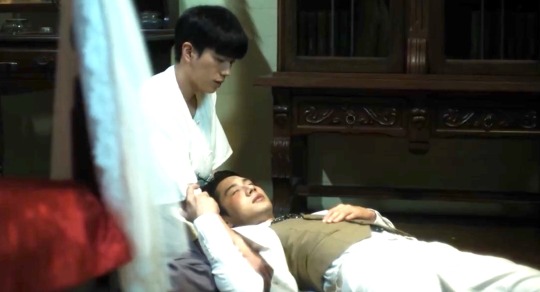
This gives us a sense of doom and discomfort and slight sensation that we shouldn't be there. We shouldn't be watching. But ALSO that we too are outside of time, filtered by the future.
In other words his sense of displacement is being used to trigger ours visually.
It's all quite clever.
It's both beautiful and atmospheric and discomforting and touch stressful. Meaning that it is ALSO a visual vehicle to drive narrative tension. As effective as scary music, perhaps more so in this show (since I personally found the musical motifs and refrains somewhat overused.)

Linguistic corner
The word for reflection and shadow is the same in Thai.
Note on the por/phor/phô honorific in Thai
I have not encountered it before in BL. I am indebted to @embraceyourfandom for the following information;
Phô is a paternal honorific, luang phô is used for respected monks. It basically means father. And is oft seen as male honorific for village elders. It's also used as a male prefix in the names of several occupations like:
พ่อครัว phô khrua (khrúa= kitchen -> chef)
พ่อค้า phô khá (khá= trade -> merchant)
พ่อมด phô mót (mót= person of occult knowledge -> wizard)
พ่อบ้าน phô bân (bân =house -> butler) - most relevant
So, Yai's use is probubly foreshadowing that Jom will be a butler for his house, and is primitively referring to him with this title.
All that said, phô can also be used by a "man who is older/higher on hierarchy to refer to a younger/lower on hierarchy man with intimacy and/or affection."
I think all this has to do with Jom's demonstration of education. Yai figured out early on that one of the reasons Jom doesn't belong and cannot fit in with the servants is that he is more educated than a peasant (of this time period), which for Yai adds up to him being originally from a higher status and possibly wealthy family, especially since Jom speaks English and has travelled (he has a non-northern accent).
There is very little Thai middle class at the beginning of the 1920s since trade is being dominated/dictated by the West, or Chinese merchant operations, and Siam is a monarchy. So for a nationalize Thai citizen educated means military, landed gentry with trade operations (like Yai), royal/political/diplomatic connections, or... none of the above. This changes, especially in the south, throughout this decade (as it did in other parts of the world). So there is a rising bourgeoisie going on in the background but it's not that obvious in Chang Mai at this time.
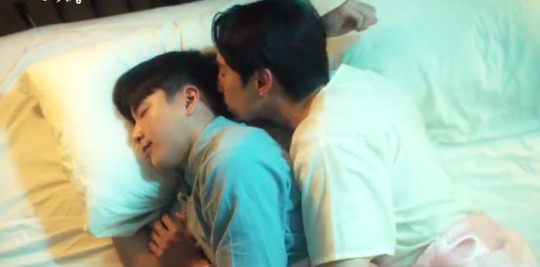
What Jom's educated lack of status means to Yai is that Jom's family either got wiped out or politically disenfranchised possibly as part of the 1912 attempted coups (or even WWI)? This would be mystifying for Yai because Jom doesn't act like he comes from a military family at all. So his background and status is very confusing for Yai, but Yai does know one thing...
Jom is NOT lower class by the standards of Yai's temporal worldview and existence.
For a young man to be educated and yet entirely alone is very dangerous and suspicious. Also, let's be clear, Jom doesn't look or act like a laborer. He red flags "cultured" all over the place.
Yai is paternalistic and caring towards Jom out the gate because Yai has a big ol'crush but also because he recognizes "his own" is trying to survive while isolated and scared.
Yai wants to rescue Jom. Yai is an ineffectual 20 year old gay intellectual. But poor thing sure tries.
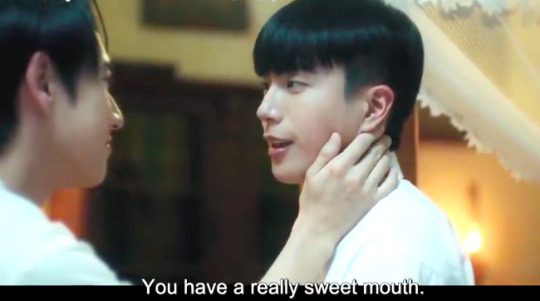

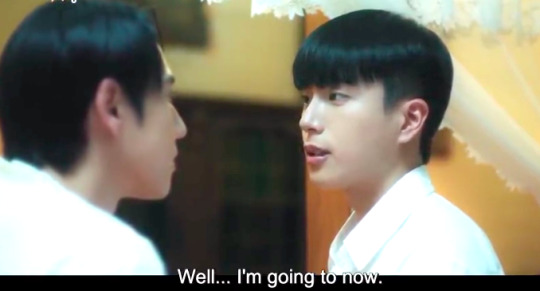
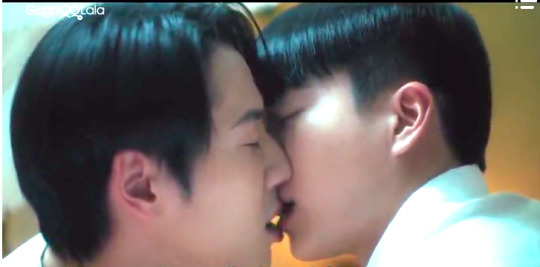
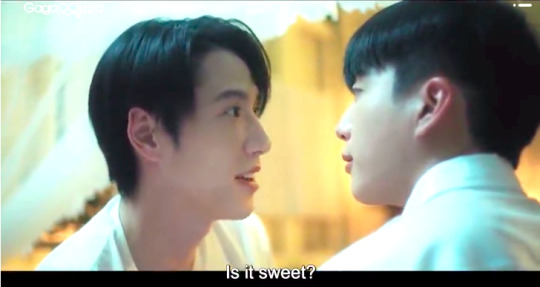
Let's Talk About How I Felt About I Feel You Linger in the Air
The historical aspect was great.
I adore historical romances and we almost never get them in BL. I was always gonna be biased towards this show. (As indeed I am towards Nobleman Ryu's Wedding, Tinted with You, and To Sir With Love.) Aside from some classic Thai BL production issues (less than normal, this is very high production value for Thailand) and my issues around the sound track and repetitive repriens (which frankly were more noticeable because I binged the last half) I have no complaints on that score (heh heh).
The surrounding support cast were all quite good and we even got us some lesbians!
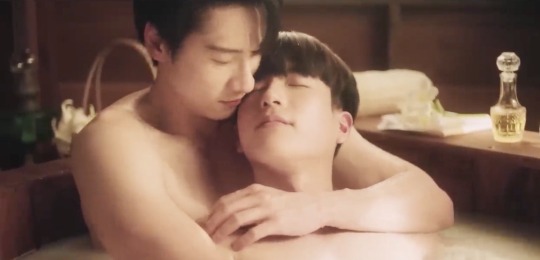
The emotional and narrative tensions were excellent.
Any issues I had with pacing came from focus on characters that didn't interest me, but probubly did interest others. I wasn’t wild or particularly interested in the family drama or the side characters/couples, but they were necessary to make this a fully fleshed story with historical context and to give Yai much needed characterization. Also this use of a ensemble cast is very close to Thailand's lakorn heart, even thought this one had way less scenery chewing ludicrous soapy drama (thank heavens).
I was delighted that external threat, stressors, and conflict drove this plot. That's refreshing in BL.
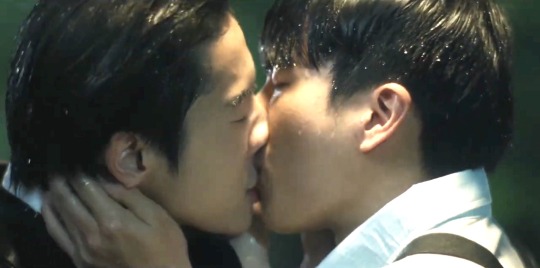
I have no arguments with the chemistry and kisses and sex scenes were tasteful and lovely, occasionally even heart-wrenching, and it's nice to see Thailand especially use physical intimacy to drive plot, and not the other way around.
I love historicals partly because every tiny touch can have such lingering significance, they're very elegant in their chaste physicality. This show didn't need to move into higher heat, but I'm grateful it did because even that was very well done. Thai BLs can often feel clumsy around intimacy, but not this one.
The final sex scene before Jom and Yai separate forever utilizes the ubiquitous director's-favorite-romantic-moments-flashbacks (required of all Asian romance dramas) but with acceleration and tension driven by the noises of sex, which I've never seen/heard done before. In other words: climax of sex = climax of the romance story, I see what you did there, Tee. Clever. Very clever. Bit on the nose… erm… on the… well you know what I mean.
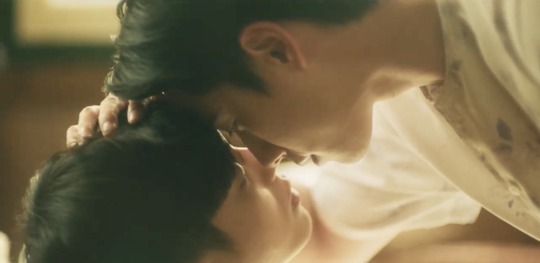
Like all Thai BLs this wasn’t perfect, but for me this is as close as Thai BL gets to high quality romance and that’s what I want the most from my drama watching experience (if not necessarily my Thai BL experience).
But... and you knew the but was coming didn't you?
I absolutely hated the ending.
It wasn't sad, don't worry, but it also wasn't good.
There is a long drawn out separations sequence and then Jom returns to the present, drowning from a car accident. Jom is "rescued" by an moustachioed iteration of Yai from the distant past (who we met once before) and then wakes in hospital. Some time later, Jom returns to the house in Chang Mai where Yai turns up and they reunite.
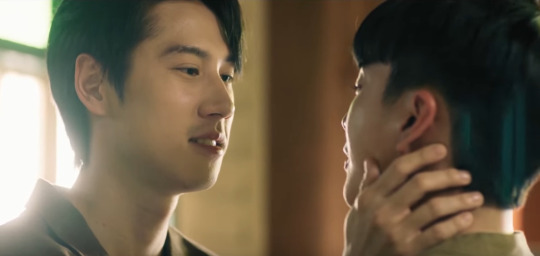
The end.
There is a stinger featuring Jom once more hurled back in time, only further, meeting the warrior mustache Yai once more.
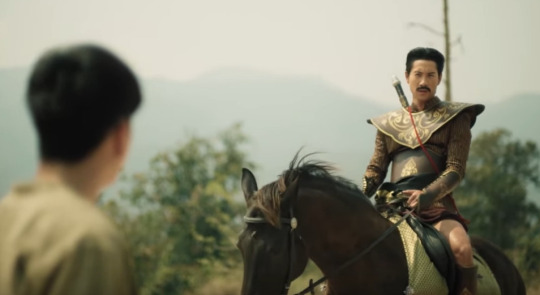
Okay, that's all I knew and all I saw.
Confused? So was I.
If this had been a regular time travel romance: Yai would have been the EMT or doctor attending Jom when he woke up and their "this time period" romance would commence. With either shared memories, or not.
Had this been set up for audience comprehension in line with the original novel, we should have had flashbacks from both Present Yai (he's not the same one, as it turns out) and deep-past Moustache Yai interwoven throughout the series. Preferably with some focus on Present Yai's quest for reunion with Present Jom AND Present Yai's own experience with visions and memory of his past lives.
A full explanation of the ending is here. This explanation of the 3 different Yais makes me like our ending more. But I shouldn't need to read Cliff's notes from some random y-novel reading fan on Tumblr to understand what's going on in a series!
There is supposedly a special happening with Jom + Present Yai.
There was unquestionably a failure in adaptation in the finale of this show.
As a fan and watcher, what I actually felt was deeply confused and hurt.
I also felt that this was a disingenuous un-earned throw away happy ending, since I had no idea who this new Present Yai was and no investment in his character. I simply didn't believe he was the same Yai (Bright is too good an actor, he was clearly a different older personality).
So the fact remains that past Yai, our Yai, the 20 year old boy we grew to understand and love, is abandoned in the past to suffer alone for the rest of his life. And THAT is an unhappy ending for one half of my beloved pair. Yes Jom gets a new Yai in the present day, but it's not the same Yai. They have no developed relationship, and Jom is doomed to leave even this new Yai and slide into the past once more. That's barely even happy for now for Jom's character.
As a result of my deep sadness for 20-year-old Yai in particular, I'm not going to be able to rewatch this show. The whole thing was rendered not just confusing but the opposite of comforting by the final 15 minutes. I'm tempted to dock it two whole points - one for the ending and the other for the lack of rewatch potential.
But the first 11.5 eps were SO GOOD.
This is one of the only times where I am actually hoping for a second season, while simultaneously being wary of the screen writing and production team's capacity to give us a satisfying one.
Industry wise? I honestly don't think we can hope too hard for a full season 2. This was an expensive show with flawed/limited distribution and little sponsorship. I don't see how they'll get funding for a second season. Unless we see this show up on like Netflix or Viki, I urge you not to hope too hard and be disappointed.
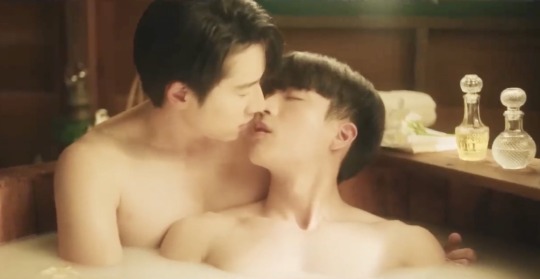
In all honestly?
I started typing up this blog post thinking Thailand was finally, after 5 years, going to earn another 10/10 from me but I just can't in good conscious give it that. It's been days and I'm still upset about that last episode.
And Now My Quick Pitch Review
I truly loved this time travel romance. IFYLITA is an exquisite BL, from filming techniques to narrative framework (much like Until We Meet Again). Steeped in history and family drama it edges into lakorn (but no as much as To Sir With Love and with way less scenery chewing). This is an elegant and classy BL... from Thailand which normally doesn't even try for classy. The main couple (both as a pair and individuals) were excellent, particularly Bright (Yai) whose eye-work acting style is a personal favorite of mine. Pity about the ending. Oh it wasn’t that sad but it wasn’t good either. This show should easily have earned a 10 from me except that it fumbled the… erm… balls. Argh. Whatever. 9/10
(source)
This post is also in My Drama List as a review.
#I Fell You Linger in the Air#Thai BL#BL review#I have LOTS of thoughts#Filming analysis#historical context#lanaguage and lingsuitic use#BrightNonkul#YaiJom#Tee Bundit
137 notes
·
View notes
Text
@tianshiisdead help our post is blowing up
tbh the amount of tags ive seen being like "i learned something new" or expressing absolute shock at the normalization of what is essentially chinese raceplay in japanese fetish culture makes me quite happy we've had this discussion publically. because this is a subject that honestly isn't studied well but HAS history:
Desire Sung with a Lisp: Chinese Women Represented in Japanese Popular Songs During Wartime; thesis by Amane Kusai
The Allure of a Woman in Chinese Dress: Representation of the Other in Imperial Japan; chapter by Ikeda Shinobu
Politics, Art & Eroticism: The Female Impersonator as the National Cultural Symbol of Republican China [in the Imperial Japanese Worldview]; chapter by Catherine Vance Yeh
and is just... incredibly normalized, like beyond sexualized caricatures of chinese women in anime/manga. "cheongsam" is a whole category on japanese porno sites. (you can google it!)
but also the lack of awareness on this kind of aggrieves me because for me personally, the only discussion i've seen of intra-east asian fetishization on mainstream sms is like. regarding genshin's sexualization of the kimono or whatnot. it's a fair and valid critique and it is worth criticizing. the hegemony of white supremacy means that even the marginalized can reproduce white supremacist ideas against other marginalized people (it's like women who perpetuate patriarchy against other women). chinese media in general is no stranger to this, especially with it's depictions of inner asians, southeast asians, MENASA, and black folks.
but i would argue that the conversation about how japaneseness specifically is presented in chinese media takes place under a premise that ignores the reality of japan-china modern relations. there's absolutely very little recognition that in the contemporary era, japan is the largest east asian producer of culture. and as a consequence, china's pop culture is therefore heavily influenced by japanese pop culture.
i think it's unfair to accuse chinese media of japanese fetishization without recognizing this fact. unperfect example, but: it's not too different from the the fact that east asian makeup and fashion styles are popular in southeast asia. it would be bad faith to accuse southeast asians of fetishization without recognizing that east asian pop culture dominate a significant part of their media (though this doesn't excuse the fact that many seasian govts have a pretty bad history w their chinese minorities!). the fact this seems to be completely ignored indicates to me something metaphysical; there's a default guilt placed upon china wrt japan in spite of the historical-cultural facts. it's sinophobia ingrained into discursive "common sense".
on the contrary, japan's fetishization of chineseness, in it's current-day iteration, is based on racial hierarchy. maybe you could potentially make an argument that any pre-meiji objectification comes from the same place as mentioned earlier (with china being the historical lingua franca of east asia) ... but as it stands now, the casual sexualization of china comes from the imperial era which sees chinese people as an object to be dominated. if you read the sources i've listed and if you watch japanese imperial movies like Shina no Yoru and find similarities of how the Chinese female lead is portrayed to characters like Chun-Li, Ada Wong, Shampoo, etc. ... the literary legacies of japanese colonialism will reveal itself.
#not art#disk horse#rambling#you may have noticed even wrt the sources i provided that the majority of the authors are japanese. this is not a coincidence either.
58 notes
·
View notes
Note
How many times did writing systems individually evolve?
Writing has been independently invented at least three times in human history: once in Mesoamerica, once in Mesopotamia/Egypt, and once in China.
The only script from Mesoamerica that has been deciphered is the Maya script, attested from around 200BC until the time of the Spanish conquest, when (to my understanding) the scribes were all either killed or retrained in writing Spanish and knowledge of the script was lost. It was subsequently deciphered again in the late 20th century, though the corpus is fairly small (most of it epigraphic) as only a handful of codices remain. Earlier, undeciphered forms of writing or proto-writing predate the Maya script in Mesoamerica, such as the (Epi-)Olmec script.
The situation in the Ancient Near East is a bit more complex. Two extremely early forms of writing are attested there, Egyptian hieroglyphs (in Egypt) and Sumerian cuneiform (in Mesopotamia). Both date from the end of the third millennium BC (that is, c. 3000BC), and one or the other has the claim to being the first writing system ever invented. My impression is that every once in a while they'll dig up an inscription from Egypt that sets the date back a little and makes Egyptian the oldest, then they'll dig up something from Mesopotamia that makes Sumerian the oldest, back and forth. But I don't know the details, maybe an Egyptologist or Sumeriologist can come in here and confirm or deny.
Anyway, one of the great things about cuneiform in particular is that there is a clear archeological record of its emergence out of proto-writing. So, linguists and epigraphers say that some system of symbols is a "writing system" when it can be used to represent a spoken language in its totality. For instance, English writing can represent any spoken English sentence, so it counts. If a system cannot systematically represent speech, but is still used for more limited kinds of communication or record keeping, it is dubbed "proto-writing". All writing systems are thought to have emerged out of earlier systems of proto-writing, in which symbols were used iconographically in various ways, before becoming fully systematized and coming to represent spoken words. With cuneiform, there is a record of this whole transitional process, which has probably informed theories about the development of writing generally more than anything else.
In any case, Egyptian hieroglyphs and Sumerian cuneiform emerged side by side at about the same time, so it is generally thought that their development was subject at least to cross-influence of various kinds, and thus they should not be counted as wholly separate "inventions of writing". But I don't know the details of this.
The last case in which writing was independently invented was in ancient China, with the oracle bone script, attested from about 1200BC. By the time of its first attestation, however, the oracle bone script was already very systematized and complex, leading most scholars to believe that it must have been in use for several centuries before the earliest extant examples. One way or another, unlike the previously mentioned scripts, the details of its initial development and any possible predecessor systems are totally unknown. Another difference is this: the Maya script and cuneiform both completely died out, leaving no descendants in use today. Egyptian hieroglyphs also died out, although if it is in fact true that the proto-Canaanite script is adapted from hieroglyphs, then they left many indirect descendants (including the Latin characters I am using right now!). The oracle bone script, on the other hand, evolved directly into modern Chinese characters, which are used today to write Chinese and Japanese (in the form of kanji) and formerly also Korean (hanja) and Vietnamese (chữ Nôm).
More cases of independent invention are possible, but are unconfirmed. Systems like the Vinča symbols are so old that they went out of use before cuneiform even developed, but they are generally regarded as being in all likelihood examples of proto-writing and not true writing systems. The Indus Valley Civilization had some symbols, but they are also undeciphered and are also probably not true writing. The Brahmi script of ancient India (c. 300BC) is sometimes argued to be an independent invention, but similarities to Aramaic have led many to believe it was at least influenced by earlier Semitic scripts (themselves all descended from proto-Canaanite, and thus, putatively, from Egyptian hieroglyphs). Rongorongo may be a writing system independently invented in Rapa Nui (Easter Island), but again it remains undeciphered and may be proto-writing. There are probably various other such examples.
Anyway, the answer to "how many times did writing systems independently develop" is "at least three, maybe a few more".
108 notes
·
View notes
Text

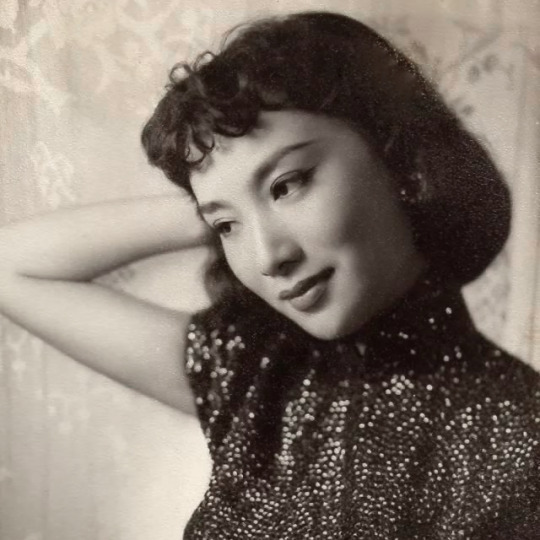
Propaganda
Marlene Dietrich (Shanghai Express, Witness for the Prosecution, Morocco)—Bisexual icon, super hot when dressed both masculine and feminine, lived up her life in the queer Berlin scene of the 1920s, central to the 'sewing circle' of the secret sapphic actresses of Old Hollywood, refused lucrative offers by the Nazis and helped Jews and others under persecution to escape Nazi Germany, the love of my life
Xia Meng, also known as Hsia Moog or Miranda Yang (Sunrise, Bride Hunter)—For those who are familiar with Hong Kong's early cinema, Xia Meng is THE leading woman of an era, the earliest "silver-screen goddess", "The Great Beauty" and "Audrey Hepburn of the East". Xia Meng starred in 38 films in her 17-year career, and famously had rarely any flops, from her first film at the age of 18 to her last at the age of 35. She was a rare all-round actress in Mandarin-language films, acting, singing, and dancing with an enchanting ease in films of diverse genres, from contemporary drama to period operas. She was regarded as the "crown princess" among the "Three Princesses of the Great Wall", the iconic leading stars of the Great Wall Movie Enterprises, which was Hong Kong's leading left-wing studio in the 1950s-60s. At the time, Hong Kong cinema had only just taken off, but Xia Meng's influence had already spread out to China, Singapore, etc. Overseas Chinese-language magazines and newspapers often featured her on their covers. The famous HK wuxia novelist Jin Yong had such a huge crush on her that he made up a whole fake identity as a nobody-screenwriter to join the Great Wall studio just so he can write scripts for her. He famously said, "No one has really seen how beautiful Xi Shi (one of the renowned Four Beauties of ancient China) is, I think she should be just like Xia Meng to live up to her name." In 1980, she returned to the HK film industry by forming the Bluebird Movie Enterprises. As a producer with a heart for the community, she wanted to make a film on the Vietnam War and the many Vietnam War refugees migrating to Hong Kong. She approached director Ann Hui and produced the debut film Boat People (1982), a globally successful movie and landmark feature for Hong Kong New Wave, which won several awards including the best picture and best director in the second Hong Kong Film Award. Years later, Ann Hui looked back on her collaboration with Xia Meng, "I'm very grateful to her for allowing me to make what is probably the best film I've ever made in my life."
This is round 5 of the tournament. All other polls in this bracket can be found here. Please reblog with further support of your beloved hot sexy vintage woman.
[additional propaganda submitted under the cut.]
Xia Meng:
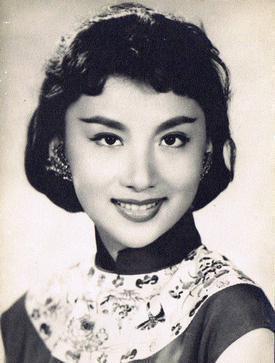
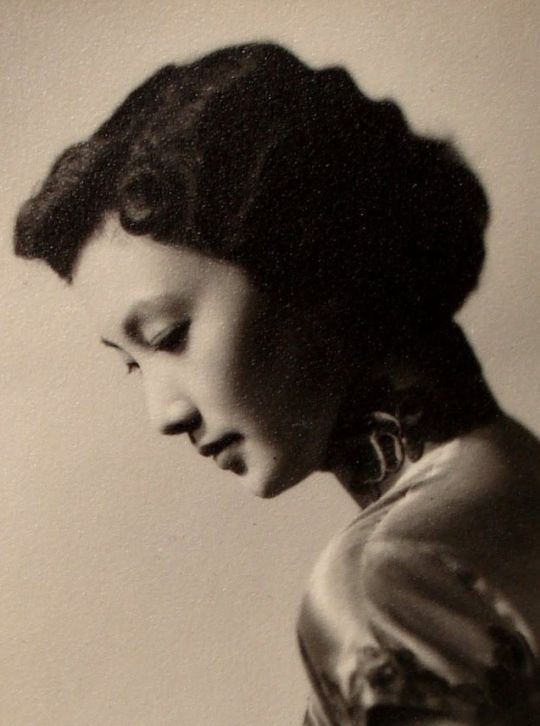
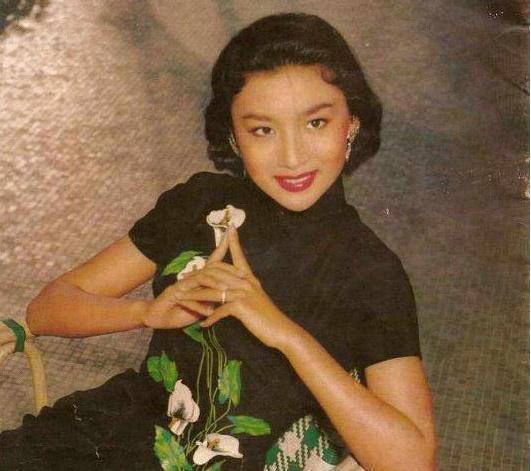
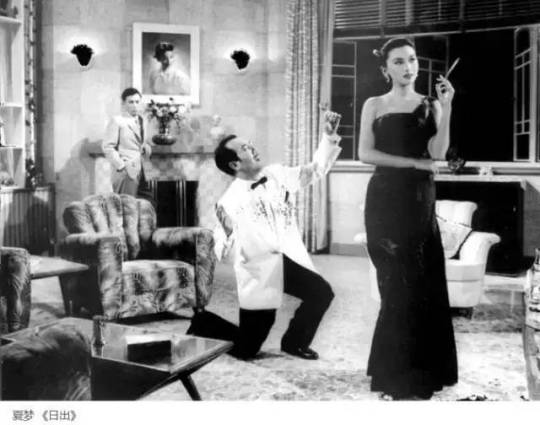

Marlene Dietrich:
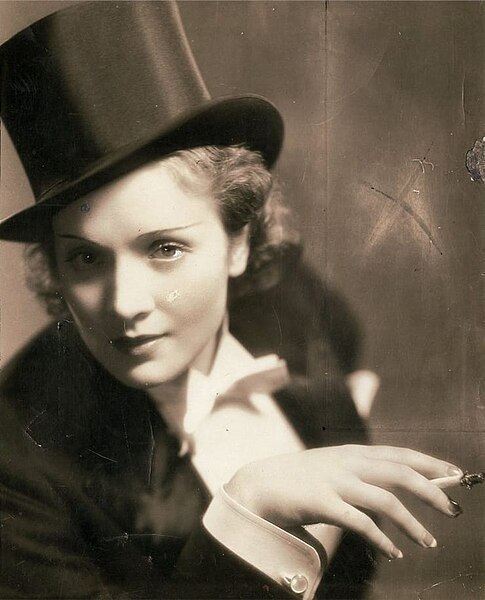
ms dietrich....ms dietrich pls.....sit on my face
its marlene dietrich!!!! queer legend, easily the hottest person to ever wear a tuxedo, that hot hot voice, those glamorous glamorous movies…. most famously she starred in a string of movies directed by josef von sternberg throughout the 1930s, beginning with the blue angel which catapulted her to stardom in the role of the cabaret singer lola lola. known for his exquisite eye for lighting, texture, imagery, von sternberg devoted himself over the course of their collaborations to acquiring exceptional skill at photographing dietrich herself in particular, a worthy direction in which to expend effort im sure we can all agree. she collaborated with many other great directors of the era as well, including rouben mamoulian (song of songs), frank borzage (desire), ernst lubitsch (angel), fritz lang (rancho notorious), and billy wilder (witness for the prosecution). the encyclopedia britannica entry im looking at while compiling this propaganda describes her as having an “aura of sophistication and languid sexuality” which✔️💯. born marie magdalene dietrich, she combined her first and middle names to coin the moniker “marlene”. she was a trendsetter in her incorporation of trousers, suits, and menswear into her wardrobe and her androgynous allure was often remarked upon. critic kenneth tynan wrote, “She has sex, but no particular gender. She has the bearing of a man; the characters she plays love power and wear trousers. Her masculinity appeals to women and her sexuality to men.” in the 1920s she enjoyed the vibrant queer nightlife of weimar berlin, visiting gay bars and drag balls, and in hollywood her love affairs with men and women were an open secret. she was an ardent opponent of nazi germany, refusing lucrative contacts offered her to make films there, raising money with billy wilder to help jews and dissidents escape, and undertaking extensive USO tours to entertain soldiers with an act that included her a playing musical saw and doing a mindreading routine she learned from orson welles. starting in the 50s and continuing into the mid-70s she worked largely as a cabaret artist touring the world to large audiences, employing burt bacharach as her musical arranger.

First of all, there are those publicity photos of her in a tux. Second of all, I have never been the same since knowing that she sent copies of those photos to her Berlin lovers signed "Daddy Marlene." Not only is she hot in all circumstances, but she can do everything from earthy to ice queen. Also, she kept getting sexy romantic lead parts in Hollywood after the age of 40, which would be rare even now. She hated Nazis, loved her friends, and had a sapphic social circle in Hollywood. She also had cheekbones that could cut glass and a voice that could melt you.
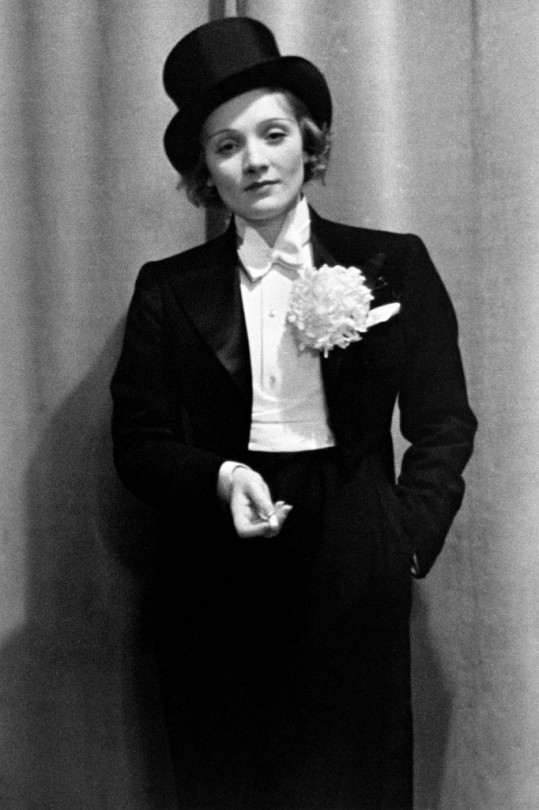
Her GENDER her looks her voice her everything
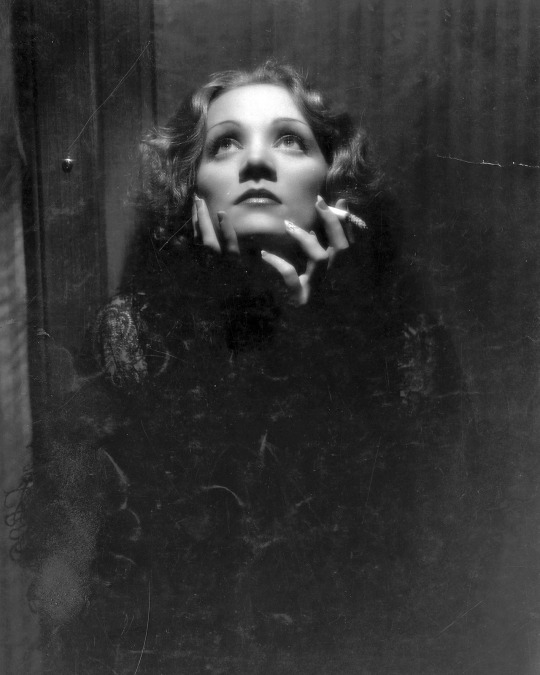
“In her films and record-breaking cabaret performances, Miss Dietrich artfully projected cool sophistication, self-mockery and infinite experience. Her sexuality was audacious, her wit was insolent and her manner was ageless. With a world-weary charm and a diaphanous gown showing off her celebrated legs, she was the quintessential cabaret entertainer of Weimar-era Germany.”
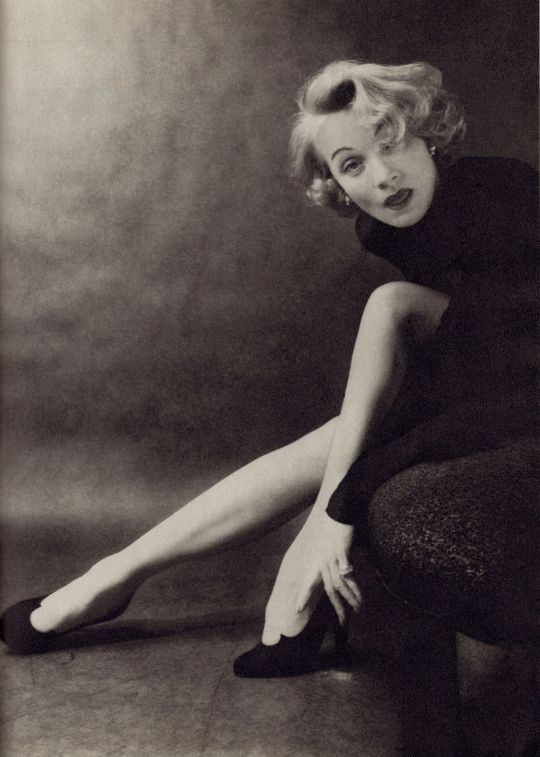
The bar scene in Morocco awoke something in me and ultimately changed my gender
youtube
"Her manner, the critic Kenneth Tynan wrote, was that of ‘a serpentine lasso whereby her voice casually winds itself around our most vulnerable fantasies.’ Her friend Maurice Chevalier said: ‘Dietrich is something that never existed before and may never exist again.’”
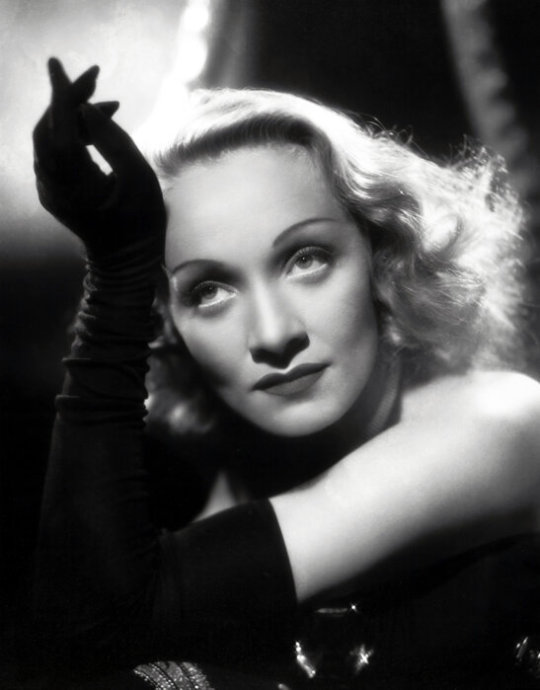
"Songstress, photographer, fashion icon, out bisexual phenom (notoriously stole Lupe Velez and Joan Crawford's men, and Errol Flynn's wife, had a torrid affair with Greta Garbo that ended in a 60-year feud, other notable conquests including Erich Maria Remarque -yes, the guy who wrote All Quiet on the Western Front- Douglas Fairbanks Junior, Claudette Colbert, Mercedes de Acosta, Edith Piaf), anti-Nazi activist. Marlene was a bitch - she had an open marriage for decades and one of her favorite things was making catty commentary about her current lover with her husband, and her relationship with her daughter was painful- but she was also immensely talented, a hard worker, an opponent of fascism and the hottest ice queen in Hollywood for a long time."
youtube
"She can sing! She can act! She told the Nazis to fuck off and became a US citizen out of spite! She worked with other German exiles to create a fund to help Jews and German dissidents escape (she donated an entire movie salary, about $450k, to the cause). She looks REALLY GOOD in a suit. If you're not convinced, please listen to her sing "Lili Marlene". Absolutely gorgeous woman with a gorgeous voice."
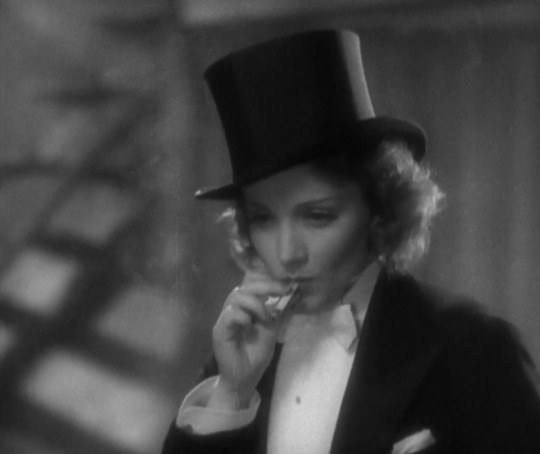
Gifset link
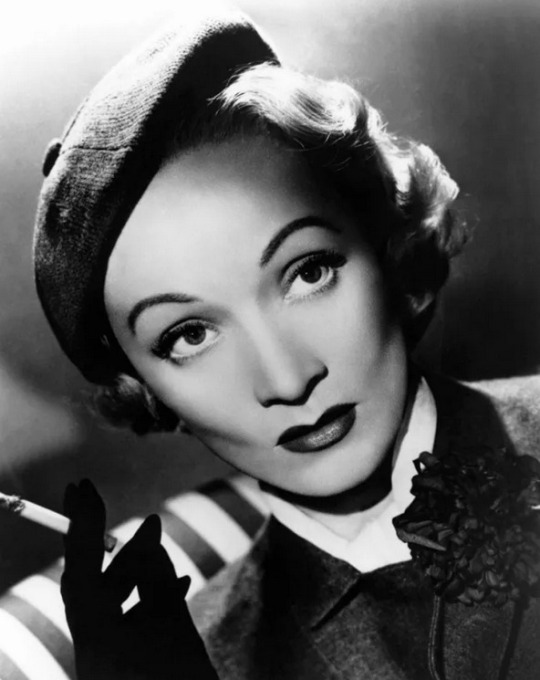

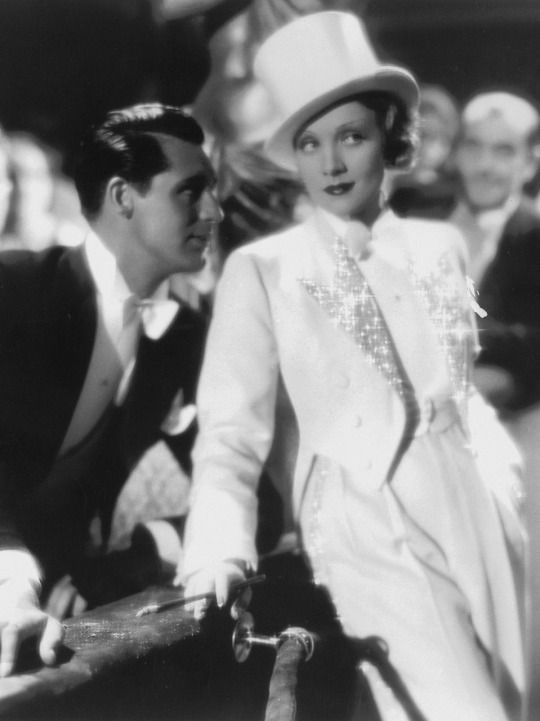
"Bisexual icon and Nazi-hater. Looks absolutely stunning in the suits she liked to wear. 'I dress for the image. Not for myself, not for the public, not for fashion, not for men'."
"would you not let her walk on you?"
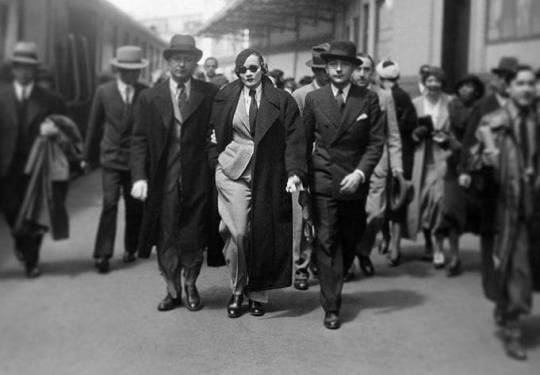
264 notes
·
View notes
Text
The scariest part...
I think the scariest part of what's currently happening is the possiblity of a world war. In 2022, people joked about the possibility of Russia starting the third world war, two years later, I can't stop thinking about it actually happening.
Israel has been complicit in many global conflicts since its creation in 1948, now that they have been called out and are being held accountable for their actions for the first time in little more than 75 years, what exactly will be the outcome?
Both the UK and the US, two countries who actively support and fund Israel, have bombed Yemen, a country that has been kicked down so many times that it is only a matter of time before they start baring their teeth. The tension between China and Taiwan is increasing and the Russo-Ukrainian War has still not reached its conclusion. This year is the year of global elections and, honestly speaking, it feels like 2024 is a disaster in the making.
Of course I remain positive, this is just the musings of an 18 year old girl who has finally awoken to the state of current affairs. I am not educated in global politics, international relations, or anything related to law. I remain steadfast in my belief that Palestine will be free, that humanity will start caring, that individualism will decrease, but even still I refuse to be blindly optimistic.
It is because of my ill-knowledge of global politics that I have these terrible feelings. What is the actual state of the Middle East, how are things in Yemen, what kind of lives are Syrians leading, whose side is Saudi Arabia and the UAE truly on? It seems that in everywhere, Africa, Europe, Asia, the Americas, peace seems to be hanging on a thin thread ready to snap at the tiniest disruption.
Yesterday, I felt pride and today I felt anger, tomorrow I wonder what will I feel. There is certainty in my heart that things will get better, that world is in its healing stage right now, that's why everything is chaotic, but the logical part of me says that perhaps the worst is yet to come.
All in all, I believe that Palestine will be free and the liberation of Palestinians is a fight that I will continue until the Apartheid Israel is dismantled once and for all. It is not simply free Palestine, it is free Yemen, free Congo, free Sudan, free every singled oppressed individual. This is what was taught to me yesterday and what was reminded to me today. Tomorrow holds as much potential as it does uncertainty, and I guess that if there's a fight worth fighting for, we should focus on that instead and not on the possibility of terrible outcomes.
70 notes
·
View notes
Photo
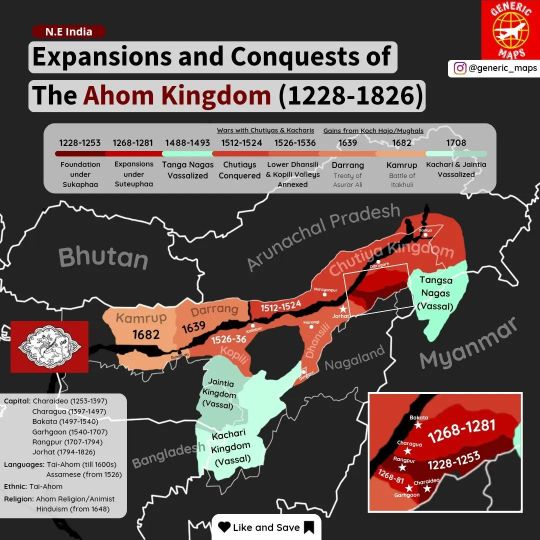
The Ahom Kingdom (1228-1826) existed in the state of Assam in modern day North East India 🇮🇳 The conception dates back to 1228 wherein a group of ethnic Tai-Shan settlers arrived into the Brahmaputra Valley under the leadership of Sukaphaa from what is now Yunnan province in China, they became known as the "Ahom" or "Tai-Ahom" people The Ahoms had numerous conflicts with the indigenous Tibeto-Burman kingdoms and tribes along with larger powers such as the Mughal, leading to at times rapid expansion and assimilation & intermixing with local groups known as "Ahomization" However as time progress the Tai-Ahoms themselves became more Sanskritized and came under increasing Hindu influence, thereby leading to the Assamese language and Hinduism replacing the original Tai-Ahom language and the traditional Ahom Religion, both of which are effectively extinct in the modern day
by generic_maps
52 notes
·
View notes
Text
Ukraine’s daring attack on a major Russian warship in occupied Crimea in the small hours of Dec. 26 was one more episode in Kyiv’s strategy to deny Russia control over the Black Sea. With most of its ships driven out of its home port in Sevastopol, the Russian Black Sea Fleet can no longer find safe haven anywhere along the Crimean Peninsula. All ports there are now vulnerable to attack.
The Institute for the Study of War tells the story with data, showing that Sevastopol saw a steady decline in the number of Russian naval vessels in port between June and December 2023; by contrast, Novorossiysk on the Russian mainland farther east showed a steady gain. While Russia has been going all-out to attack Ukraine’s infrastructure, its risky move to deploy ships and submarines armed with Kalibr missiles in the Black Sea is exposing them to potential Ukrainian attack. It is a tacit acknowledgment that Russia can no longer depend on Crimean ports and launch sites.
Ukraine’s success has been due to domestically produced missiles and drones, sometimes launched using Zodiac boats or jet skis. But its most potent attacks have come from the air, where Ukraine has used its Soviet-era fighter aircraft to launch both domestically produced and NATO-supplied missiles. These attacks have taken place with the protection of Ukraine’s advanced air defenses—including newly supplied foreign ones—which are regularly shooting down the majority of Russian missiles and drones destined for Ukrainian targets.
Ukraine thus has made significant strides denying Russia control of both the sea and airspace over and around its territory, thereby preventing the Russian Navy and Air Force from operating with impunity. But is that enough for Kyiv to win? To many Western observers, victory doesn’t seem possible in the face of wave after wave of Russian troops grinding down Ukrainian defenders. Ukraine’s strategy to deny Russia free use of its sea and airspace may be working, but as things stand, it cannot defeat the Russian army on the ground, nor can it defend against every missile striking civilian targets.
Indeed, the current conventional wisdom in large parts of the West is that Ukraine is losing the ground war, leaving no pathway to victory for the country as Russia pounds Ukrainian civilians into submission. Kyiv might as well call for a cease-fire and sue for peace.
The trouble with this scenario is that it spells defeat not only for Ukraine, but also for the United States and its allies in Europe and Asia. It would embolden both Russia and China to pursue their political, economic, and security objectives undeterred—including the seizure of new territory in Eastern Europe and Taiwan.
But is the conventional wisdom right—or does Ukraine’s clever success at sea and in the air suggest that a different outcome is possible? Perhaps the Russian army can be defeated by making use of Ukraine’s willingness to fight in new ways. If you asked a U.S. military professional, the key to dislodging the Russians is to subject them to relentless and accurate air attacks that are well synchronized with the maneuver of combined arms forces on the ground. While the Ukrainians are admirably using the weapons at hand to strike Russian forces both strategically, as in Crimea, and operationally, as in hitting command and logistics targets, success at the tactical level has remained elusive. To achieve a tactical breakthrough on the ground front that leads to operational and strategic success, they will need to be more effective from the air.
For power from the air to be decisive in 2024, the Ukrainian Armed Forces must create temporary windows of localized air superiority in which to mass firepower and maneuver forces. Given the Ukrainians’ success in denying their airspace to Russia at points of their choosing, such windows are possible using the assets they already have at hand. More and better weapons tailored to this scenario would make them more successful across the entire front with Russia.
Gen. Valery Zaluzhny, the commander of the Ukrainian Armed Forces, acknowledges that to break out of the current positional stalemate—which favors Russia—and return to maneuver warfare, where Ukraine has an advantage, Ukrainian forces need air superiority, the ability to breach mine obstacles, better counter-battery capability, and more assets for electronic warfare. Specifically, he argues for three key components. First, armed UAVs that use real-time reconnaissance to coordinate attacks with artillery (which could include properly armed Turkish-built TB2s, MQ-1C Gray Eagles, MQ-9 Reapers, or bespoke cheap and light UAVs capable of employing the necessary weapons). Second, armed UAVs to suppress enemy air defenses, as well as medium-range surface-to-air missile simulators to deter Russian pilots. And third, unmanned vehicles to breach and clear mines.
Although the technologies are new, this combination of capabilities recalls the method U.S. and allied NATO forces practiced during the Cold War in West Germany to confront numerically superior Warsaw Pact ground forces protected by layered air defenses. The Joint Air Attack Team (JAAT) was developed to synchronize attack helicopters, artillery, and close air support by fighter planes to ensure a constant barrage of the enemy in case of a ground force attack. Pooling NATO assets in this way was designed to give the alliance’s forces the mass, maneuverability, and flexibility needed to overcome superior numbers, avoid a war of attrition, and escape the type of bloody slugfest that characterizes the current stalemate in Ukraine.
In Ukraine’s case, a modernized JAAT would encompass, among many things, armed UAVs carrying Maverick and Hellfire missiles, loitering munitions, precision-guided artillery shells, and extended-range standoff missiles fired by aircraft. These systems would be coordinated in an electromagnetic environment shaped by Ukrainian operators to dominate the local airspace, saturate the battlefield with munitions, and clear mines to open the way for a ground assault. This updated JAAT—let’s call it electronic, or eJAAT—would create a bubble of localized air superiority that would advance as the combined arms force advances under the bubble’s protection.
Given Russia’s willingness to endure significant casualty rates, the eJAAT could be even more effective on defense: Massing firepower against advancing troops through an eJAAT might result in a stunning rout of the attackers, opening opportunities for Ukraine to strategically exploit the sudden change of fortunes.
Zaluzhny has made it publicly clear that “the decisive factor will be not a single new invention, but will come from combining all the technical solutions that already exist.” Like all good commanders, Zaluzhny is painfully aware that the 2023 campaign didn’t work as well as he had intended. Even so, and to their advantage, the Ukrainians have clearly demonstrated their innovative talents, willingness to exploit Western methods, and total commitment to victory. U.S. and European assistance to work with them on how to better manage operational complexity and combine technology, information, and tactics in more dynamic ways, coupled with security assistance tailored to the eJAAT approach, would return movement to the now-static battlefield and give Ukraine a fighting chance.
If Ukraine can achieve the momentum in the ground war that evaded it during its failed summer offensive, Kyiv will have a real pathway to victory. That pathway will run through Ukraine’s demonstrated prowess at sea and in the air, joined to an embrace of a sophisticated combination of techniques on the ground. It will be a pathway to victory not only for Ukraine, but also for the United States and its allies.
82 notes
·
View notes